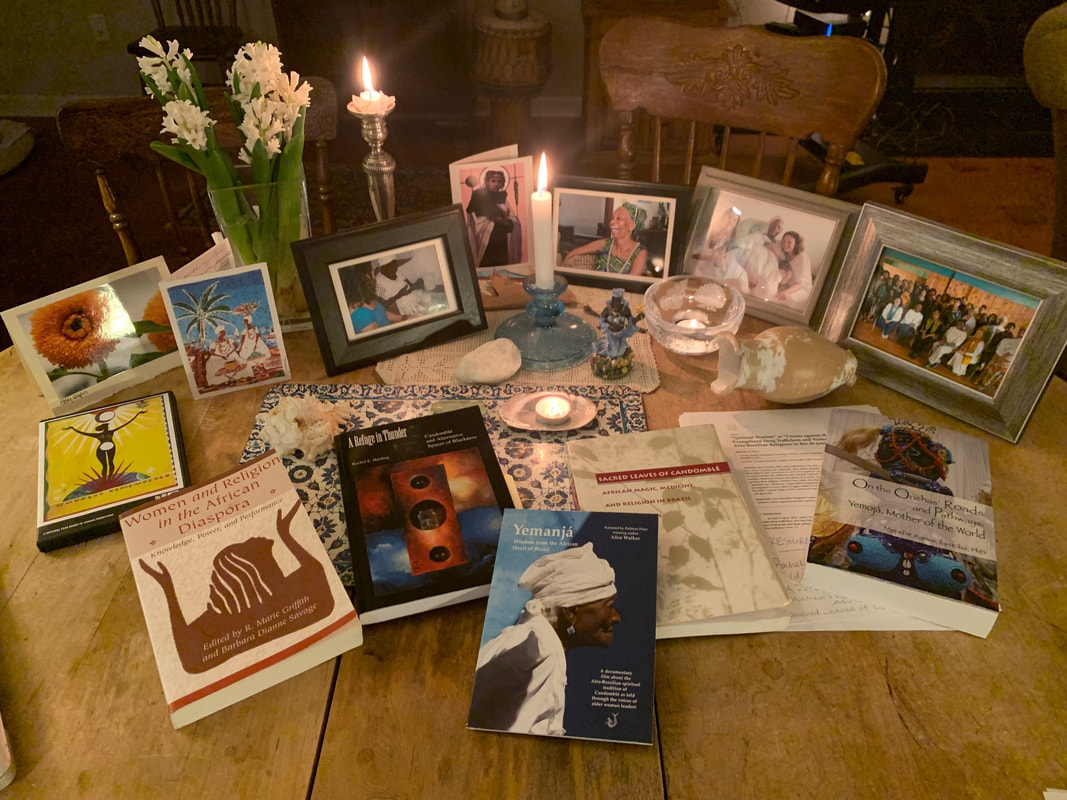 VT Interfaith Power & Light Event & Religious Racism VT Interfaith Power & Light hosted a virtual screening and discussion event on February 23 including panelists: Rt. Rev. Dr. Shannon MacVean-Brown, Bishop of the Episcopal Diocese of Vermont (the first Black Bishop of Vermont), Rev. Dr. Nancy Wright of Ascension Lutheran Church, and Rev. Rachel Field of Mission Farm. But it was a special guest who focused our discussion on a serious issue that needs more attention. Dr. Danielle Boaz, a lawyer and Prof. of Africana Studies at University of North Carolina, is an expert in religious intolerance and violence in Brazil which she prefers to call religious racism. Dr. Boaz has worked on intolerance against African Diasporic religions for over a decade, focusing in recent years on Brazil because, “things have gotten so bad there.” Most of this violence takes place in the State of Rio de Janeiro vs. Bahia where the film was made, but this grave injustice also exists in Bahia. Bishop Shannon pondered a connection between intolerance/violence targeting Candomblé and the fact that many of the religious communities are women-led. Pr. Nancy commented on the common plight of women and nature as cited by eco-feminists (Candomblé is often called the religion of nature), especially in a patriarchal culture like Brazil with the Amazon rainforest being decimated with little to no protection by the current federal government. Rev. Rachel spoke of her interest in becoming more indigenous to a place; she was particularly inspired by the knowledge of plants demonstrated by Makota Valdina Pinto, the late Candomblé leader who is a strong voice in the film. When asked how we can support work to transform the unthinkable violence against practitioners of traditional African religions, Dr. Boaz said, “the most important thing to do at this time is to raise awareness about what is happening. The Brazilian government needs to feel the pressure to do something about this violence; so far, there is not enough outrage from outside Brazil….” Dr. Boaz also believes this film provides “a powerful opportunity to help" raise awareness. Dr. Boaz's project website: https://www.religiousracism.org/brazil Facebook page: International Commission to Combat Religious Racism: https://m.facebook.com/africanareligiousfreedom Dr. Boaz has an article on religious intolerance in Brazil coming out this summer in the Journal of Africana Religions. Her book, Banning Black Gods, is newly available in hardcover. Please follow her work on Facebook and share with friends who may also care.Thanks! Obrigada! (The film’s director Donna Roberts works p.t. as Coordinator of VTIPL.)
0 Comments
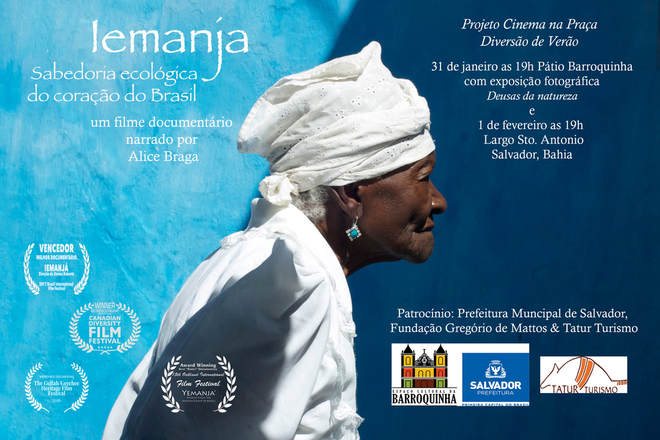 While roads in the Candomblé tradition refer to the specific "caminho" or aspect of devotees' Orixá or spiritual guide, I reflect on the road our film has taken this year. The year began with a wonderful screening event in San Francisco, CA during Martin Luther King Jr. celebrations and our ally Rachel Elizabeth Harding speaking with the film to a large gathering at the Yerba Buena Center for the Arts. Yet the greatest moments of the year, and perhaps the life of the film so far, were two outstanding screenings under the stars in Bahia, leading up to the annual Festa de Yemanjá on February 2. The presentations were sponsored in part by the City of Salvador which meant (among other things) our film was finally embraced by the formal "powers that be" in the place where the film was conceived and created. Axé! North American friends sponsored our travel expenses and shipping the photography exhibit, "Goddesses of Nature". We are so blessed to have this support. The first of two consecutive events took place on January 31 at Espaço Cultural Barroquinha. This space was formerly a church known as Barroquinha, which is considered the cradle of the matriarchal essence of Candomblé, with a permanent altar to Oxúm guarding our work. Our photography looked beautiful inside the cultural center's theatre space, a sanctuary in times past. The film was projected outdoors, under the full moon, on the eve of Bahia's Carnavale. The energy was high! People arrived late, as is the way in Brazil, and technical issues arose, making a North American filmmaker very nervous. Yet of course, all was well in the end. Very engaged conversations followed the film with tourists and locals, old friends and new acquaintances. It was coming full circle. One month shy of 21 years from my first visit to Bahia when I first laid eyes on an image of the Boa Morte Sisters, including a Mãe Filhinha, our film's eldest matriarch, in a poster in a friend's apartment. Had I known then that it would take a lifetime to manifest an idea born in that moment, I might have "run away!" as associate director/editor Donna Read counsels anyone considering taking on a documentary project...unless, that is, you must do the work. It was my destiny. I am so glad I followed the road that called! The second screening took place in a historic family neighborhood called Santo Antonio do Carmo, in a public square, where families mingle at sunset, youngsters riding bikes and couples strolling. There was a more diverse and larger group that night...standing room only...with free popcorn provided by the city...some of the best I've had! I overheard people working with the City of Salvador saying how beautiful the film was, the importance of the message of the women in the film. These neighborhood screenings were part of the Cinema na Praça program. Cinema in the Park. I kept thinking how the film could show in so many neighborhoods to help dispel misunderstandings about Candomblé. Unfortunately, there are many misconceptions there and in North America about Afro-indigenous spiritual traditions. As Casa Branca leader Ekedy Sinha says in our film, "It's ignorance"...we fear what we don't understand. That has always been my goal in Brazil, that our film help clarify misunderstandings. Apparently it is fulfilling this objective. Brazilians often tell me how much they learn from our film about their own country, their culture. The bonus was participating in two Festas de Yemanjá in big city Salvador and the next week in Cachoeira by the Paraguaçu River. I realize I prefer the small town version. I also had the chance to meet with two of our film's "stars" Ekedy Sinha and Makota Valdina to share stories of our film's journey and hopes for the future. Among the best moments in Cachoeira was encountering a gorgeous mural of Mãe Filhinha! (Photos below) In the early spring, an Atlanta-area cultural group presented our film at a public library, with a deeply compelling post-screening panel discussion. I had the good fortune of being there unexpectedly due to a last-minute family visit coinciding with the screening. Then we participated in a Lusosphere Symposium at University of Pittsburgh, a rare chance to show the film without leaving town! Next was the "Beloved Symposium" at University of Albany, NY, celebrating the 30th anniversary of the publication of "Beloved" by author Toni Morrison who had attended the University. Our film and discussion opened a two-day event with distinguished scholars from Howard University, in Washington, D.C. (Dr. Nikki Taylor) and other universities. Finally, the spring season closed with a special screening at University of California Santa Barbara. What a magnificent city where the mountains meet the sea, and blessed with the eternal presence of Santa Barbara/Oya/Iansá . Our next major screening is in Toronto on November 2 at the Parliament of the World's Religions. What an honor it will be to share our film at such a distinguished gathering! We continue working toward completing the Spanish version of the film, with sights on a debut in Havana at Casa de Africa.
Sometimes we get so caught up in the busi-ness of the moment, we forget to reflect on where we've been. We prepare for our film's long-awaited public debut in Salvador da Bahia on January 31 with a great sense of fulfillment. Last year opened with screenings in L.A.'s prestigious PanAfrican Film Festival, followed by winning Best Documentary at Oakland International Film Festival in April (see previous blog). Our film and photography opened the FOCUS BRASIL gathering in Fort Lauderdale in May where many Brazilians expressed gratitude for our film helping to clarify for them their own nation's history. Later that month, we won Best Documentary at the Brazil International Film Festival in Rio de Janeiro (Teresopolis), where our longtime colleague Leonardo Dourado picked up the award. On June 5, the film was presented during the U.N. Ocean conference in the event, Black Guardians of the Sea, hosted by the Caribbean Cultural Center-African Diaspora Institute. A grant from the Greater Pittsburgh Arts Council facilitated travel to Florianopolis, Brazil, for an August screening at the Women's Worlds/Fazendo Gênero Congress where I had the chance to participate in a massive and joyous women's march. Then I traveled to Bahia to participate in a conference about Afro-Brazilian Religion and Culture in Cachoeira at the invitation of Dr. Denize Ribeiro, who is featured in our film. In Salvador, I was honored to visit Mãe Stella de Oxóssi, one of Candomblé's - and our film's - great leaders, at her terreiro and offer her copies of our film. I also had a meeting with Ivete Sacramento, Secretary of Reparations for the City of Salvador, to request her help getting our film into Salvador's public schools. There were also several discussions with officials from the City of Salvador and its cultural institutions brainstorming about the premiere of the film and photography exhibit in Salvador. (That took five months to confirm!) The fall season brought screenings in Denver, Montreal, Pittsburgh, Baltimore and Boston. Here are a few photos from those special events. Cleo Parker Robinson Dance Ensemble, in Denver, featured our film during Denver's Biennial of the Americas, with a panel discussion including Dr. Rachel Harding, Dr. Melanie Harris, Deanna Lowman and Cleo Parker Robinson. The dance company was even rehearsing a Yemaya dance on the day of our screening! Next was the International Black Film Festival of Montreal, where our film was nominated for Best Documentary, and I participated in a Master Class with other invited filmmakers. Our film showed in the Baltimore International Black Film Festival in early October, then in Pittsburgh at Phipps Conservatory's Environmental Film Festival, including a panel with invited guests Dr. Sheriden Booker who joined us from NYC, and Dr. Anthony Mitchell. (That's our Pittsburgh group celebrating afterwards with Sheriden far left.) In mid-November, the film was shown in Boston on the opening night of the annual conference of the American Academy of Religion, where Dr. Rachel Harding and I reunited for a conversation. A bonus was attending a luncheon and workshop on religion and ecology organized by Yale Forum on Religion and Ecology, and a panel featuring contributors to a new book, "Planetary Solidarity: Global Women's Voices on Christian Doctrine and Climate Justice".
The year closed with a confirmed invitation (arriving on December 27!) to finally have the public premiere of our film and photography exhibit in Salvador, at historic Barroquinha (the place where the Sisterhood of Boa Morte and the city's principal "matriarchal" Candomblé terreiros originated) in the city's Carnaval programming on January 31, just two days before the Festa de Yemanja! What could be better? We are grateful, feeling blessed, anxiously awaiting this grand event. It's an apt homecoming...21 years after the film was conceived. Odoyá Yemanjá! We are ecstatic that our film won the Roots Award for Best Documentary at the 15th Annual Oakland International Film Festival in Oakland, CA on April 8!
The award was presented by Louis Gossett Jr., distinguished actor and member of the original cast of the TV series ROOTS, during an evening that showcased a discussion about the original and recent Roots series' and their importance today more than ever. The Festival was a wonderful opportunity to screen films, meet other filmmakers and visit Oakland, which is a very cool place! Our film was the centerpiece of an evening at Holy Names University, where our photo exhibit was featured. Iya Wanda Blake, Oakland-based priestess of Yemaya, joined us in a panel discussion, along with filmmaker Eve A. Ma, whose short film "Masters of Rhythm" about Afro-Peruvian percussion screened prior to ours. Professor Chiho Sawada invited Gerald Hoffman and I to speak to students about our film and photography the following day. Iya Wanda was a lead sponsor of our screening, along with Barry Pierce, Paul Kumar, the Oakland Film Society, and the Asia Pacific Peace Studies Institute of Holy Names University. The morning of the Roots discussion and Awards, Iya Wanda fulfilled my wish to take flowers to the sea. After a quick tour of San Francisco, Wanda took us to Baker Beach by the Golden Gate Bridge where we offered flowers to Yemanjá. We thanked her for the many blessings of our lives and this work with the film, while asking for continued guidance. Then she fed us a delicious homemade gumbo. What loving care we received! Axé! Ashé! Ase! 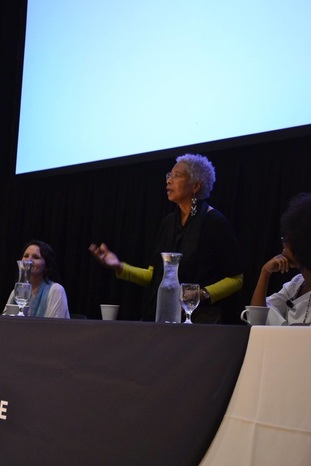 October 27, 2016 was the best imaginable "hometown" premiere when our film's narrator, courageous activist, Pulitzer Prize-winning author Alice Walker joined us in Pittsburgh for a dynamic, inspiring, provocative panel discussion following a film screening at Chatham University. The college is the alma mater of Rachel Carson, author of Silent Spring, considered the mother of the contemporary environmental movement. (Top photo from left: panelist Dr. Rachel Harding, Dr. Jessie Ramey-Chatham Women's Institute, the great Alice Walker, Chatham President Dr. David Finegold, panelist Donna Roberts, moderator Dr, Huberta Jackson-Lowman) We were also very pleased to welcome author and scholar of indigenous spiritual traditions, Dr. Rachel Elizabeth Harding, daughter of the late, great Freedom Movement leaders Vincent Harding and Rosemarie Freeney Harding. (Rachel and I spoke on a panel with the film at Emory University, Atlanta, in fall of 2015.) Dr. Huberta Jackson-Lowman, psychology professor at Florida A & M moderated the panel. Both scholars are priestesses - Iyas - of traditional African Orisha religions. Rachel is a devotee of Brazilian Candomblé, an Iya of Oxúm, connected with the Bahian terreiro, or spiritual community, known as Cobre (also the spiritual home of Alice Braga, narrator of our film's Portuguese version). Oxúm is the female Orixá of the fresh waters. Huberta is an Iya dedicated to the Orisha known as Obatala, or Oxalá in Candomblé. (Orixá is the spelling in Brazilian Candomblé; Orisha is the spelling according to those practicing the similar Cuban derived spiritual tradition.) Some 800 guests turned out for the screening held in the historic Campbell Memorial Chapel, with overflow in the nearby Eddy Theatre, where the panel discussion was live-streamed. After a lovely VIP Reception, everyone gathered for the film screening. An opening Libation led by local Priest of Yemonja Baba Frank Hightower transformed the auditorium to a sacred space and set the perfect tone for the film's story. (Nervous as I was seated in the front row with our special guests, just watching this film was calming, as it always is.) As the credits rolled, the audience applauded enthusiastically as Alice, Rachel and I took the stage. (Alice didn't attend the Reception; the audience was thrilled to finally see her!) Most of the panel discussion is a blur! I just kept thinking that I needed to keep my comments brief - everyone wanted to hear from Alice. And they did! When she stood to respond to a first question, everyone burst into applause! What love! And she returned it! Much of the conversation revolved around women and caring for our Earth. Women of color, elder women, the need for women to embrace our unique selves and stand strong, regardless of size and weight, the importance of the voices of women of indigenous backgrounds worldwide, the absolute necessity to prioritize care for the Earth, the waters, the natural world. The following day, Alice, Rachel and I participated in a workshop our local advisory circle had organized at a public high school for girls of two very different populations: an inner city public school and a private all-girls school, led by Prof. Gloria Rodriguez who joined us from CUNY. (photo below) Gloria is also an Iya of Oshun, as is Iya Bea Mitchell, one of our believed local advisors. The significance of gathering three priestesses of the fresh water Orixá in Pittsburgh, the city of three rivers, was extremely special. Following the morning with the young women, we crossed to the city's North Shore to visit City of Asylum, a project for exiled writers, artists and local community. Organization founder/director Henry and his partner Diane hosted our group for a delicious lunch in their private home, where we were joined by two artists in exile. Afterwards, the group was proud to show us around the artists' accommodations - several rowhouses painted/designed according to the artists' inclination. Alice clearly loved learning about City of Asylum. Afterwards, we headed over to the Carnegie Museum of Art where director Lynn Z. offered a tour of the exhibit of late Brazilian artist Hélio Oiticica. (Our favorite part was a room with hammocks! Alice looked like she could have stayed there forever.) Saturday was the icing on the cake! Iya Gloria and I had worked for months to plan a workshop for women called Living Waters modeled on an activity she led in Salvador, Bahia, and in honor of the feminine water deities, including Yemanjá, Oxúm, and Nanã. Sister-advisor Celeta Hickman created a beautiful facsimile shrine to Yemanja (or Yemaya) which adorned our gathering space at the Hill House Association in Pittsburgh's traditionally black Hill district. We were all invited to place a special object at the shrine. I brought a large framed photo of Mãe Filhinha, our film's eldest matriarch, along with photos of me and Jennifer Alisa Sanders (with whom I began this film's journey in 1997), another of me and associate director/editor Donna Read, who played a major role in bringing the film to fruition in 2015. Full circle! Gloria led us through a series of introspective, reflective exercises in the morning, accompanied by a Divine selection of music. Each woman had the chance to symbolically release what no longer served her, pouring cups of water into a communal vessel for later release to the waters of the Monongahela River. After a typical Brazilian lunch of feijoada, several members of the ABAFASI women drumming group brought down the house as each woman in the workshop took a turn joyfully dancing in the circle. Some serious energy was raised!!! To close the day, we traveled to Pittsburgh's South Side meeting on the banks of the Monongahela for a blessing of the waters, the waters of the world, Mother Earth, our own living waters, sharing gratitude, asking for guidance, offering white flowers to the waters of Oxúm, of Yemanjá…Orisha leaders from near and far - men, as well as women - participated, along with water protectors, servers from Pittsburgh region. Diversity and unity in community! Axé! Ashé! Ase! Photos - Top to bottom: young women in workshop at Milliones High School; Abafasi drummers at women's Living Waters workshop; Celeta Hickman dancer par excellence; Iya Rachel Harding shows her moves; Sister-Iyas Valerie Lawrence and Huberta Jackson-Lowman approach the drums; Iya Gloria Rodriguez is pure grace; Celeta gets Alice moving; honoring Yemanja; Blessing of the Waters; Alice and Donna; the waters that sustain us.) 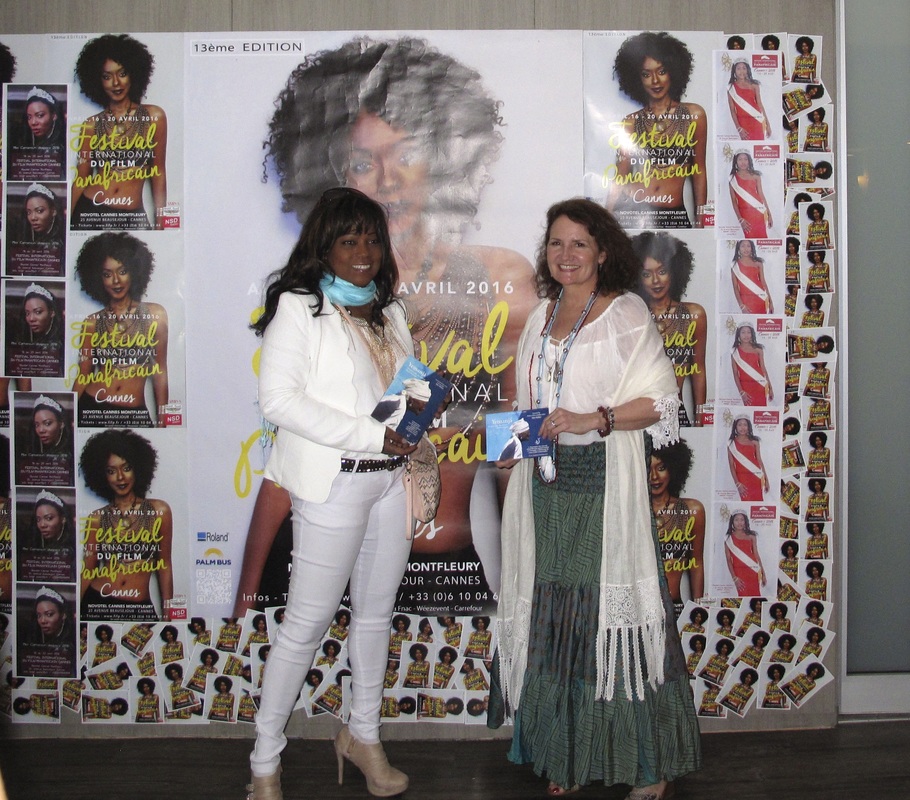 (Photo above- at Cannes' International Pan African Film Festival) From New York City to Harvard, Miami, Cannes and back to New York, once the film had its first public screening in New York with the Caribbean Cultural Center-African Diaspora Institute, we barely stopped long enough to unpack a suitcase! A complete list of events is on the screening page of the website; please have a look to see how blessed we have been with support from so many distinguished cultural organizations, academic institutions and research conferences. Highlights include the International Women's Day special event at CUNY, where a group of enthusiastic students welcomed a panel of women, organized by Prof./Iya Gloria Rodriguez, now a dear friend. Shortly thereafter, we headed to south Florida with film and photography exhibit for events on World Water Day at the Fort Myers' Alliance for the Arts, with special remarks by Mayor Henderson and sponsored by the Lee Co. Black History Association. A beautiful drive through the Everglades took us to Florida International University (FIU), for a screening and panel, sponsored by the Africana Studies Department, thanks to the extraordinary support of Dr./Baba Willie Ramos. Then with less than a week to unpack summer clothes and dig out winter coats, we headed to Harvard University's conference of the African and Diasporic Religious Studies Association, organized by Funlayo Wood. That event and CCC-ADI's conference provided such tremendous knowledge and insights into North American and Caribbean Orisha traditions, and opportunities to meet many powerful people who I've read about for years. Once back from Boston, an invitation arrived to what would be our festival debut, in Cannes, during the International Pan African Film Festival...with only two weeks to decide whether to go! Convinced by friends that it was a once in a lifetime opportunity, I went. It definitely was that..and a chance to practice my very rusty French, long since overtaken by my slightly better Brazilian-Portuguese. Morning walks by the French Riviera, communing with the azur sea, were almost as good as meeting all the fine folks at the festival. The highlight of the spring was sharing our film with an appreciative audience at Lincoln Center in the New York African Film Festival. Yemanjá was the featured film in a sold out Mother's Day event, along with a documentary about the legendary heroic figure Queen Nanny of Jamaica. The Q & A afterwards brought terrific questions and a few tears, mostly from a Bahian woman ... obviously helping her to "mater saudades". (Saudade can't be translated; closest is when you really miss and long for something.) As Yemanjá is the Yoruba Great Mother Goddess of the Sea, there couldn't have been a more appropriate day to showcase our film...in the best place imaginable! Now, we prepare for film festivals of late summer, while awaiting news from and applying to various festivals at home and abroad. Most exciting of all, we're organizing a magnificent series of activities for the October 27 Pittsburgh film premiere in our current hometown, featuring a panel discussion with our film's narrator, Pulitzer Prize-winning author Alice Walker, Dr. Rachel Elizabeth Harding and esteemed Candomblé leader Makota Valdina Pinto, from our film. SAVE THAT DATE!! With profound gratitude for all the gifts. On the Chinese New Year of the Fire Monkey, we are thrilled to be preparing for our first pubilc screening of the film in New York City on Sunday, February 28, at 1:00 p.m., during the Caribbean Cultural Center-African Diaspora Institute's two-day symposium, Trade-itions: Trans-Atlantic Orisha Sacred Traditions. The film screening will be followed by a panel discussion featuring distinguished leaders connected with the path of the Orisha Yemanjá (Yemaya or Yemoja depending on the cultural tradition.) The event will be at City College Center for the Arts, CUNY, in northern Manhattan. Check it out! http://www.cccadi.org/upcoming-events/2016/2/28/tradeitions-trans-atlantic-orisha-sacred-traditions As Yemanjá was celebrated last week in Bahia, Brazil (on February 2), here's a photo of a permanent hommage to the Great Mother Orixá/goddess in St. Tiago do Iguape, Bahia, taken by dear friend Luciene Gordilho! Odoyá Iemanjá! Thanks to the film's wise and wonderful Advisory Circle for contributing such terrific support and sisterhood! We met last night to discuss the film going forward and to share some black beans and rice on a chilly winter's night.
(Left to right Sabira Bushra, Teanna Medina, Ola Obasi, me, Lilan Laishley, Celeta Hickman [standing], Victoria Hanchin, and LaVerne Baker Hotep [standing]. Mala Shah had to depart early.) We also spoke gratitude for the mothers and matriarchs in our lives, familial and otherwise, inspired in part by the work of the extraordinary Freedom Movement activist and educator the late Rosemarie Freeney Harding and her daughter Rachel Elizabeth Harding and their new book, Remnants: A Memoir of Spirit, Activism, and Mothering. (Duke University Press). I am treasuring the final few pages now. http://www.rachelelizabethharding.com/#!remnants/crjf Be well. Stay Warm. Happy New Year! So here we are in January 2016 and our film is on her way! Our journey with the finished film/s (English & Portuguese versions!) began with two wonderful inaugural screenings in Bahia, Brazil, last August - where the elders of the film gave us their all-important "blessings". That was followed in October by a first private U.S. screening and related events at Emory University (Atlanta) included a panel with invited Candomblé scholar/writer Dr. Rachel Harding and Dr. Dianne Stewart. The film's companion photo exibit Goddesses of Nature accompanied us to Bahia and Atlanta. It was the best possible beginning and we are excited for possibilities in the new year! Please see our list of upcoming screenings below. Photos top top bottom: longtime friend Lek helps to hang our photo exhibit at Pousa da Palavra gallery in Cachoeira, Bahia; Second photo: our core organizing group in Cachoeira, surrounding 3 of our film's stars, Georgina Santos, Ekedy Sinha & Denize Ribeiro; Third photo: famed singer Virginia Rodrigues whose sound enlivens our film, as well as the music of Grupo Gege Nago, led by Valmir Pereira; Fourth photo: at Emory U with Dr. Emmanuel Lartey, Dr. Dianne Stewart and Dr. Rachel Harding. Bottom image: Formal invitation to first screening, sponsored by Secretary of Culture of City of Cachoeira (Cachoeira was home of the late Mãe/Mother Filhinha de Yemanjá, to whom our film is dedicated). Current & Upcoming events:
-through February 16, 2016 - London - The British Library Yemanjá film clip featured in major exhibit, West Africa: Word, Symbol, Song -February 28, 2016 - New York City - a screening & discussion at the Caribbean Cultural Center-African Diaspora Institute's Trade/itions Trans-Atlantic Orisha Sacred Traditions Symposium in New York City -late March screenings in various Florida locales (details coming) -April 9, 2016 - Harvard University, Cambridge, MA African and Diasporic Religious Studies Association. In the meantime, we await news from several film festivals taking place in April and May and will post on those as news arrives. We enthusiastically welcome invitations to share the film and discussion with universities, cultural centers, conferences, and the like, with the option of displaying the beautiful photo exhibit by videographer/still photographer Gerald Lee Hoffman (see web page, Photography Exhibit). Finally, we are now fundraising to support the distribution and marketing phase of our work, in case you and yours are interested. We are eternally grateful for the chance to do this great work! Stay tuned to our Facebook page for updates: www.facebook.com/yemanjathefilm Please share with your friends. Axe! Blessings be. |
Author
Donna Roberts, Producer/director, Yemanjá Archives
March 2021
Categories |
Proudly powered by Weebly
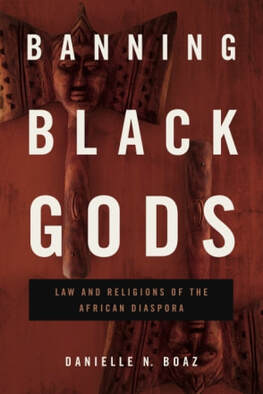
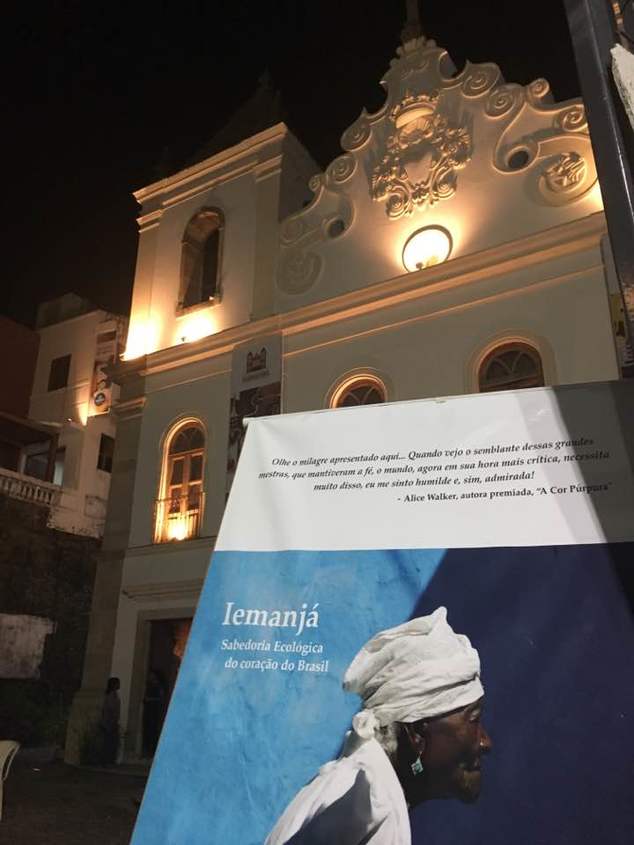
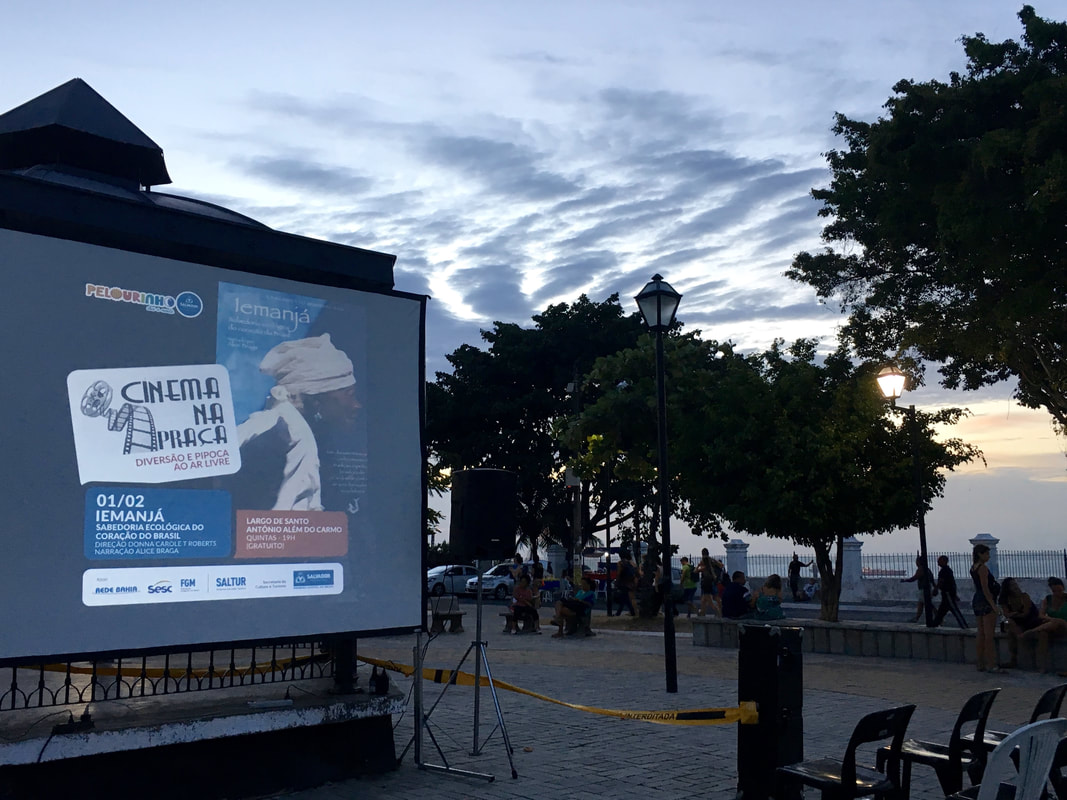
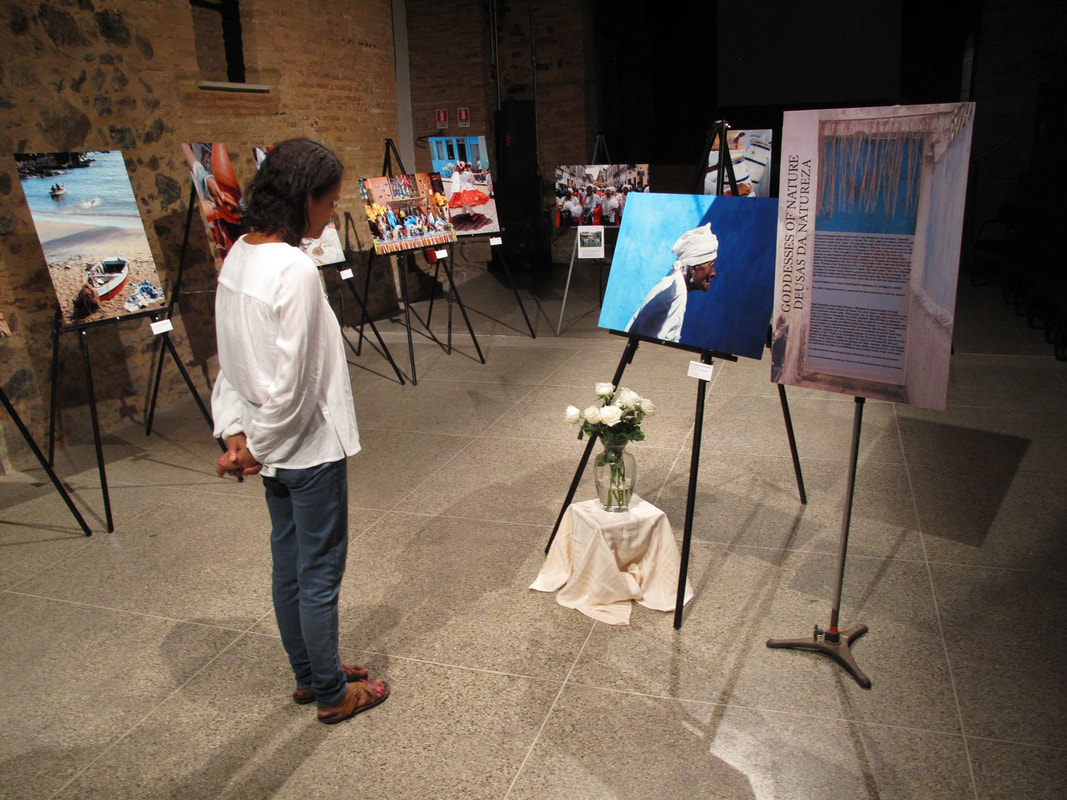
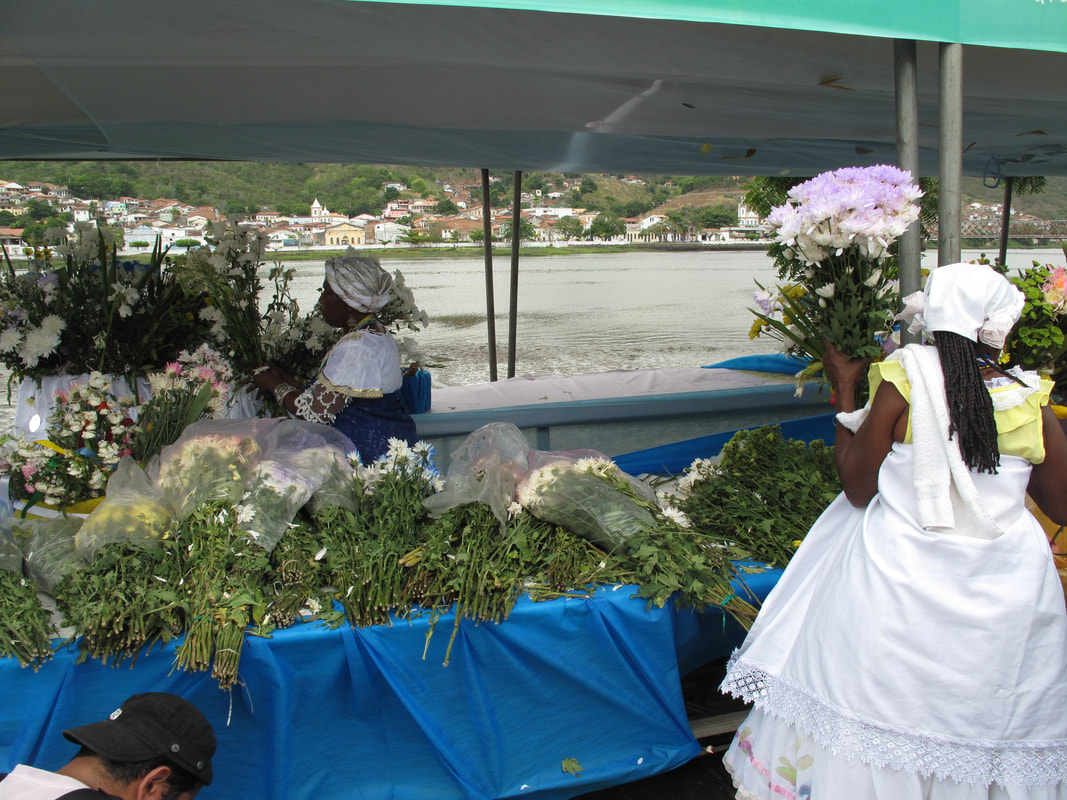
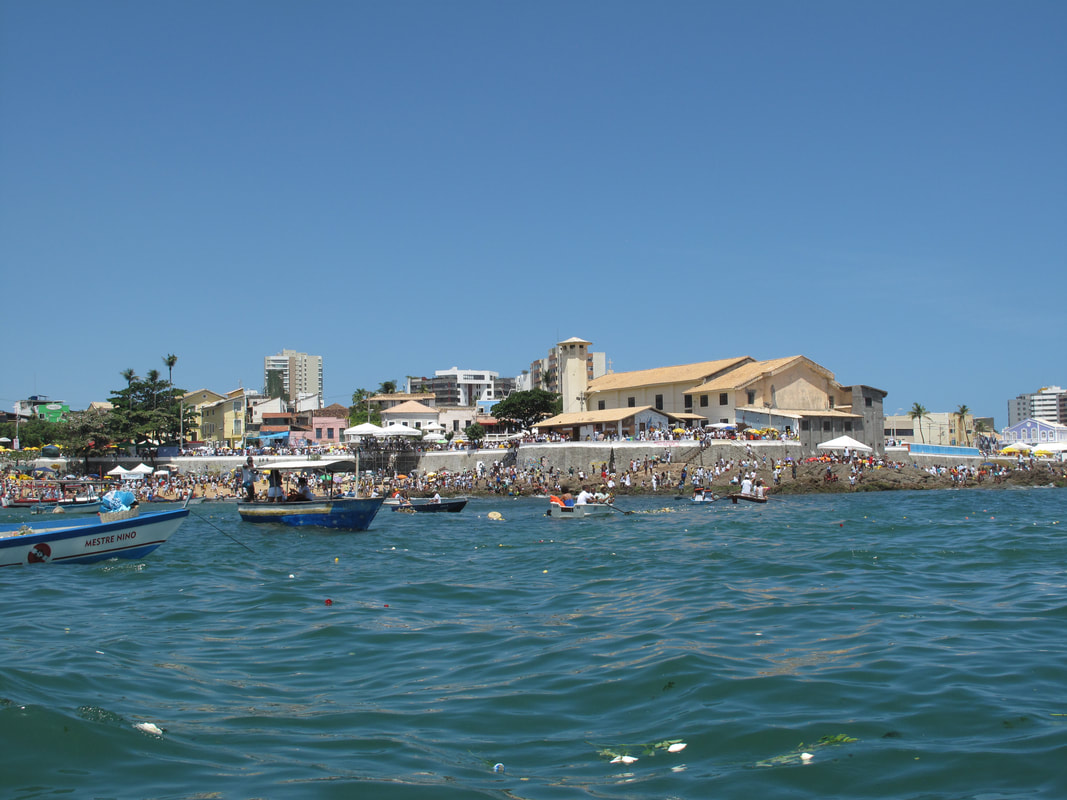
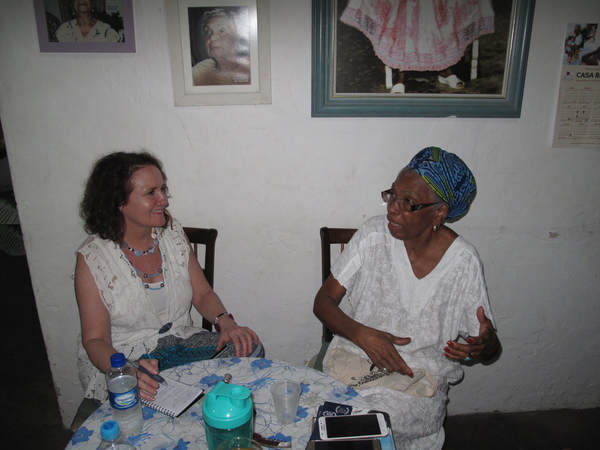
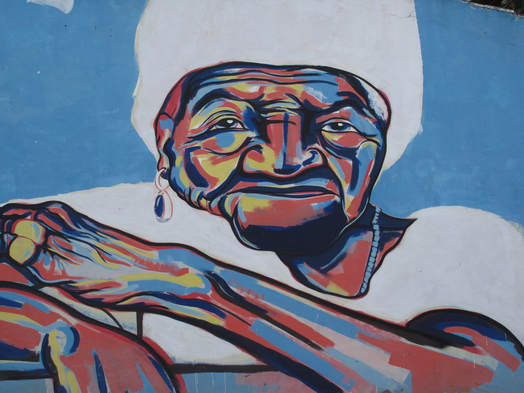
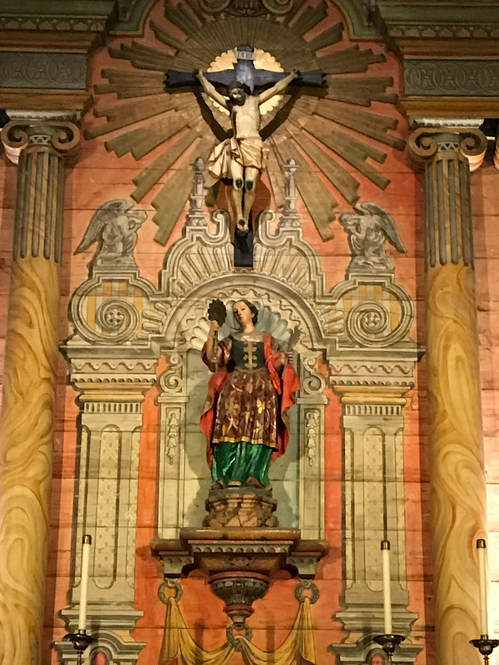
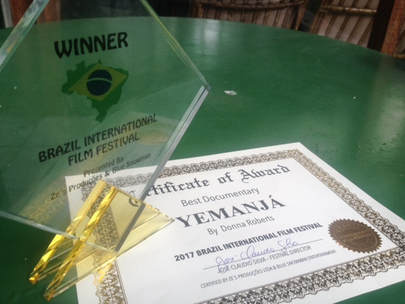
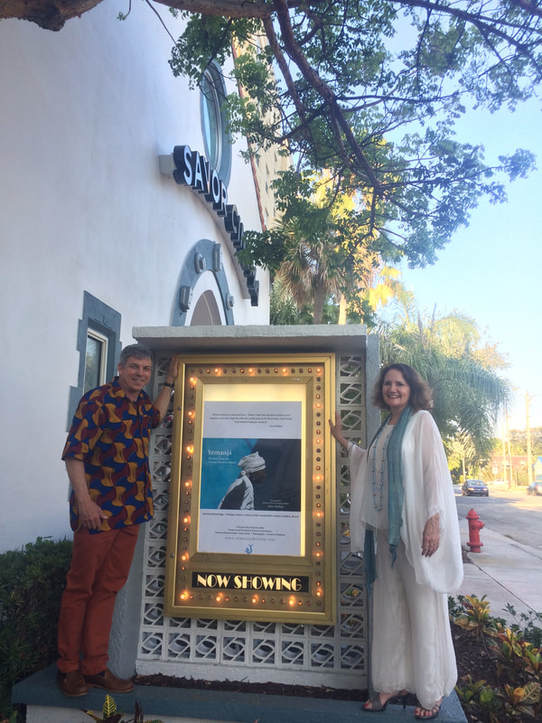
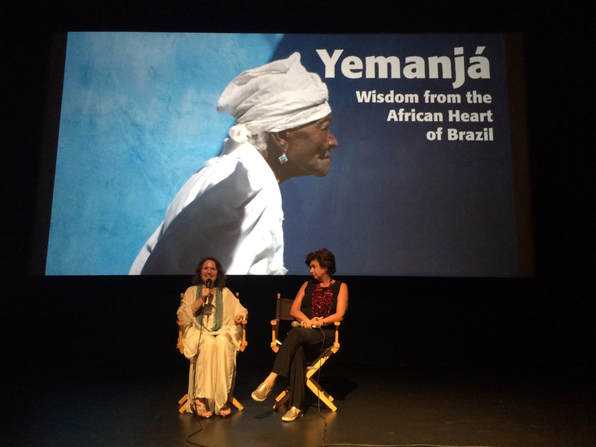
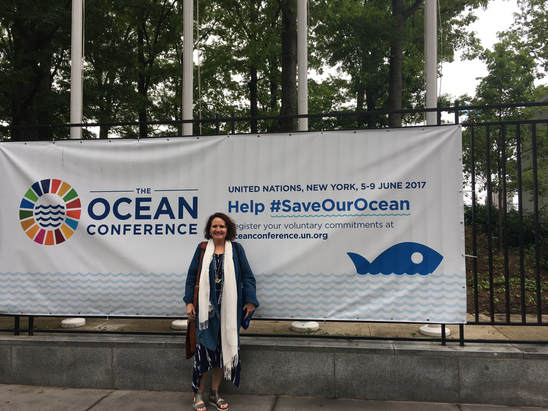
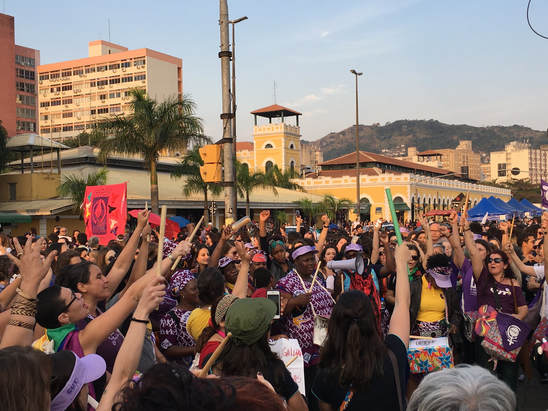
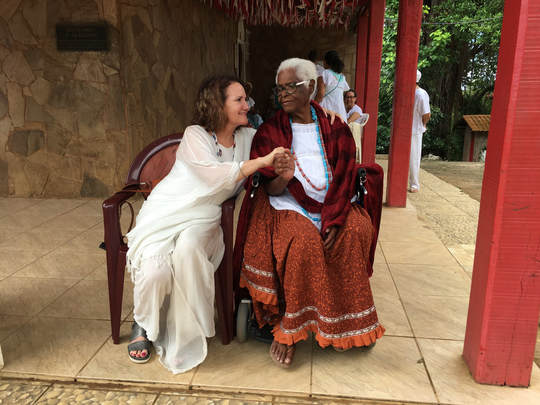
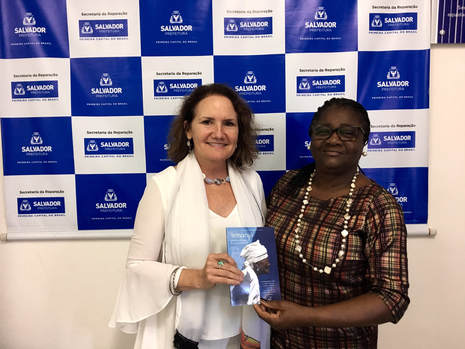
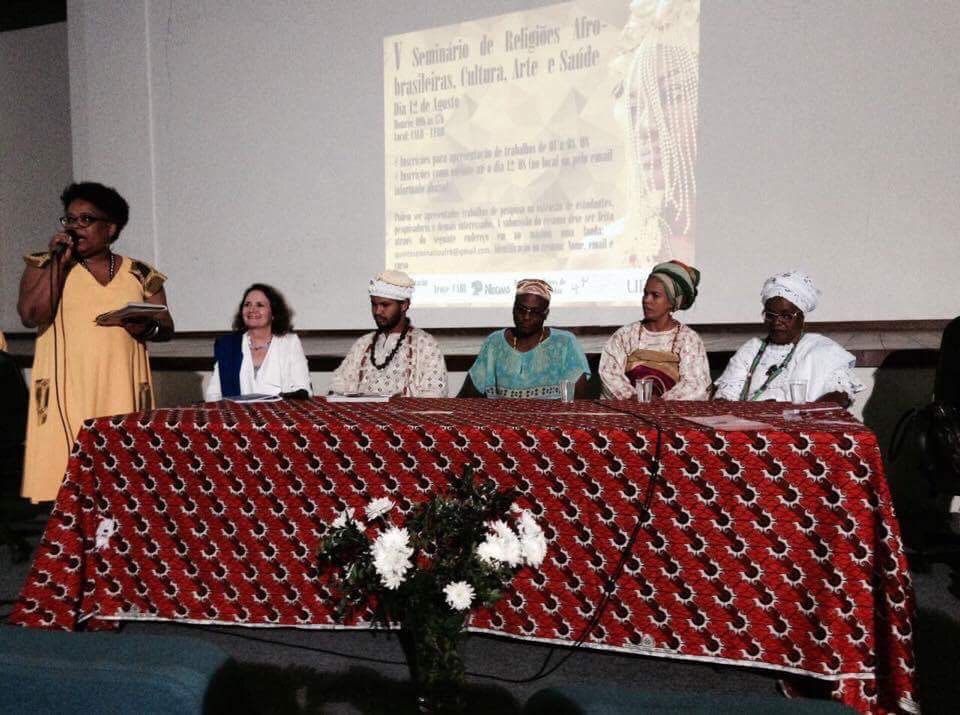
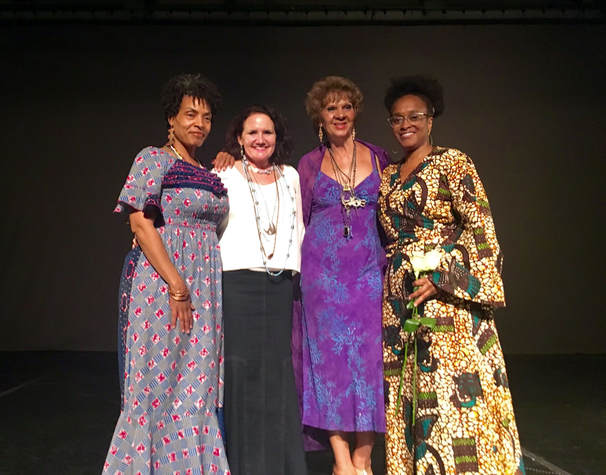
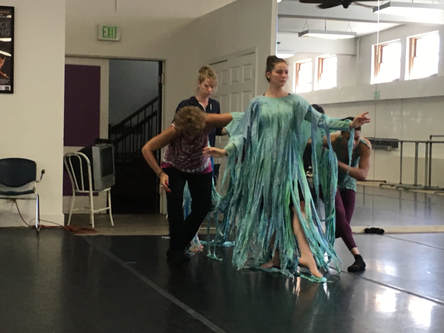
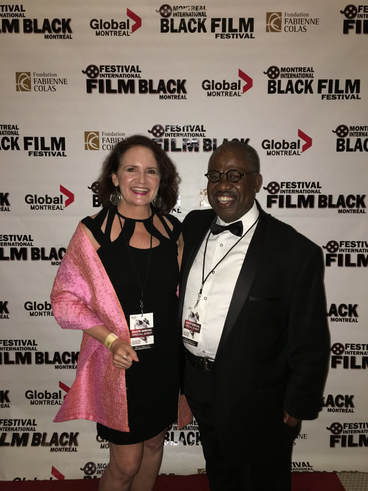
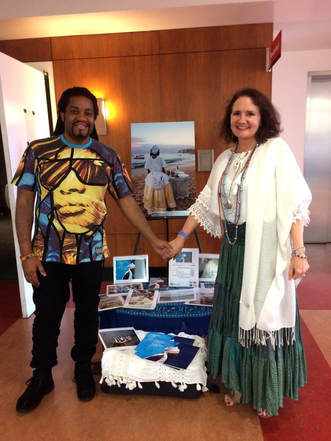
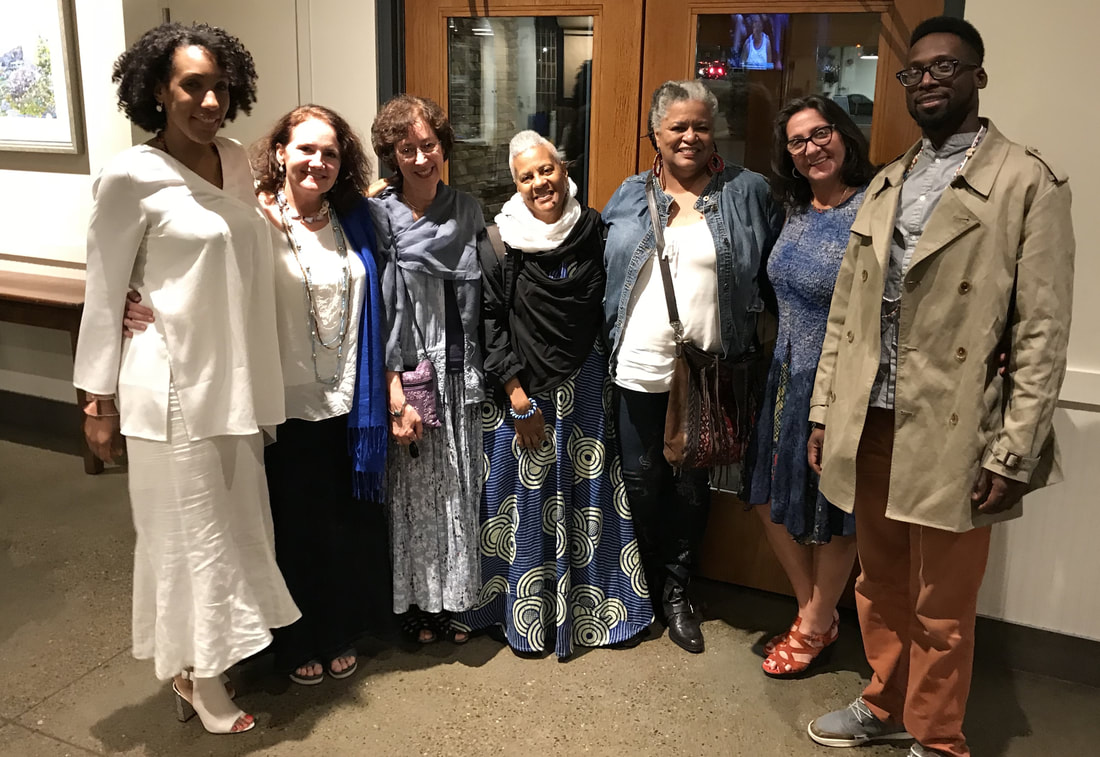
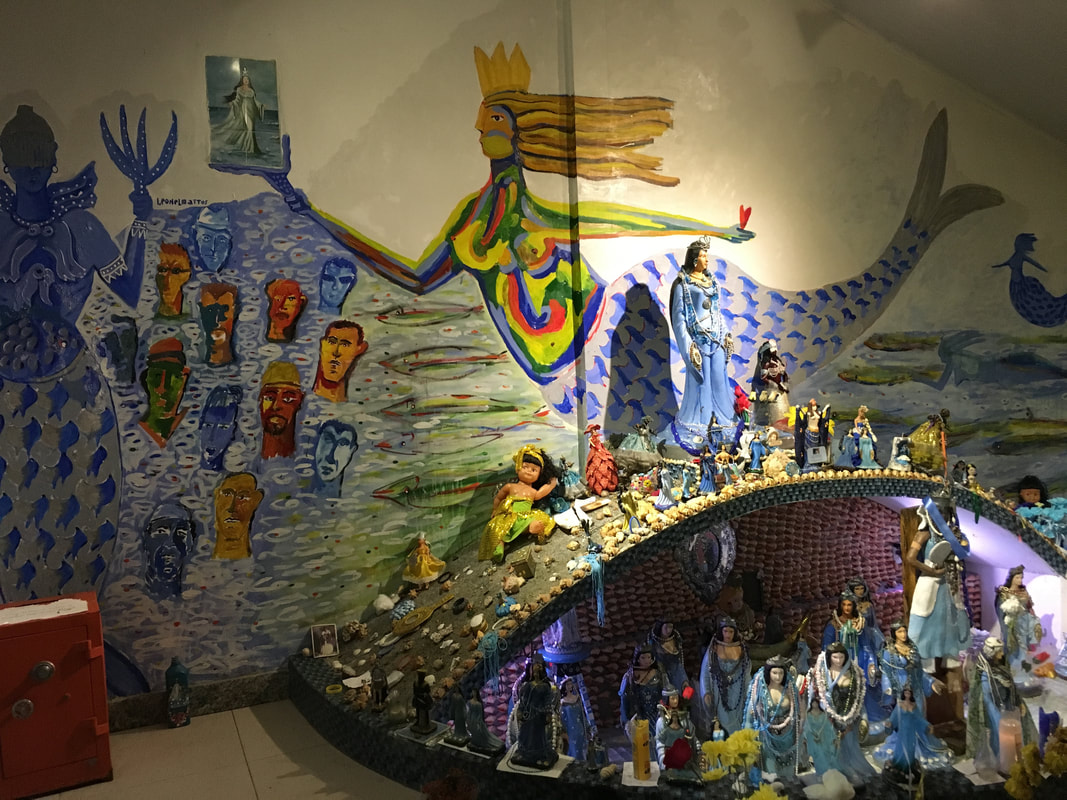
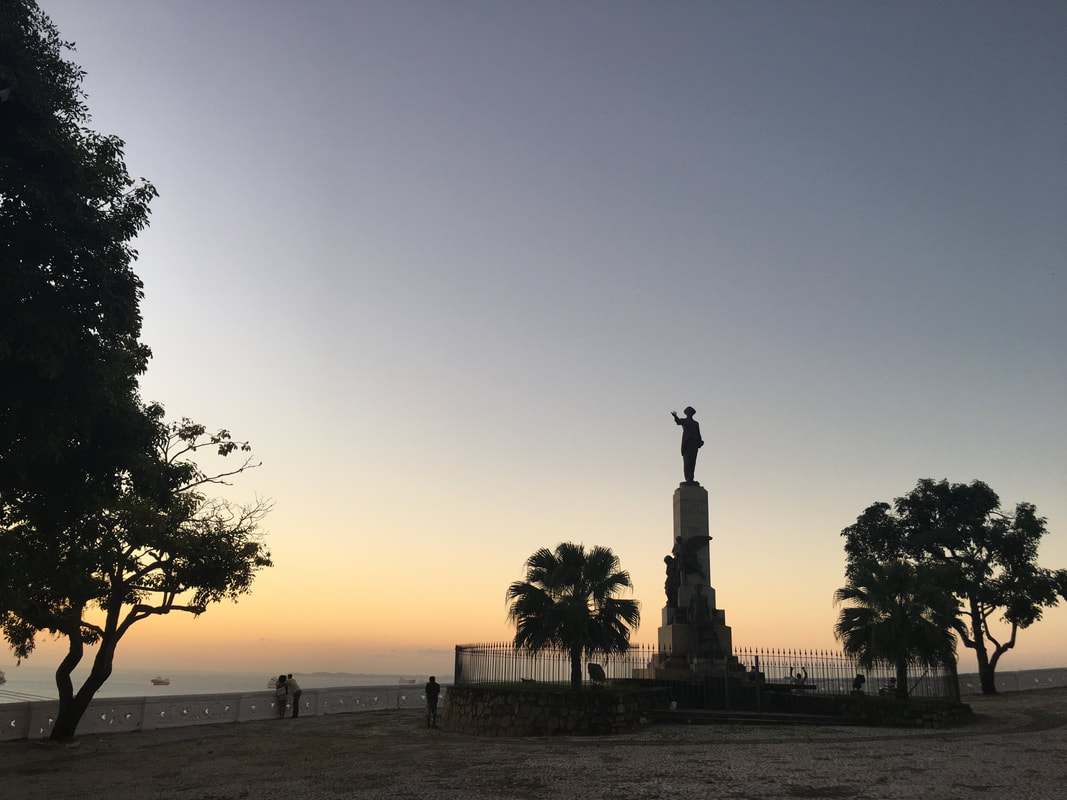
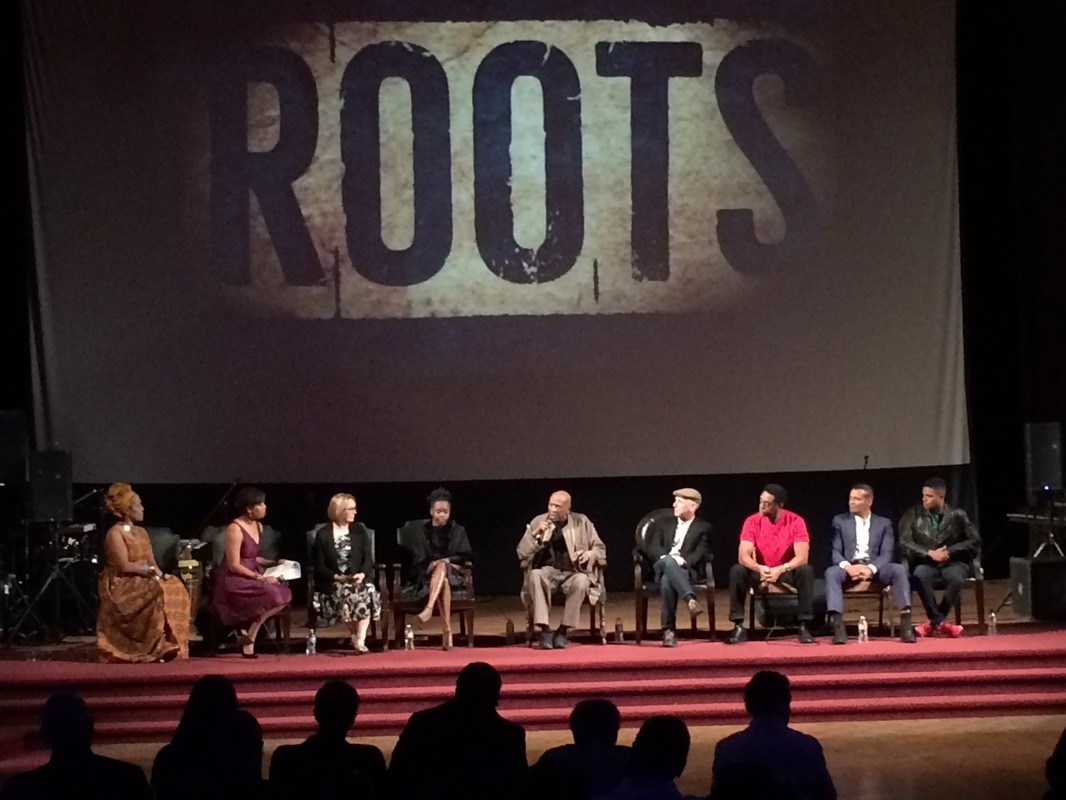
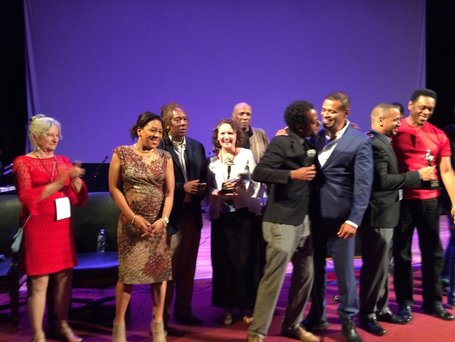
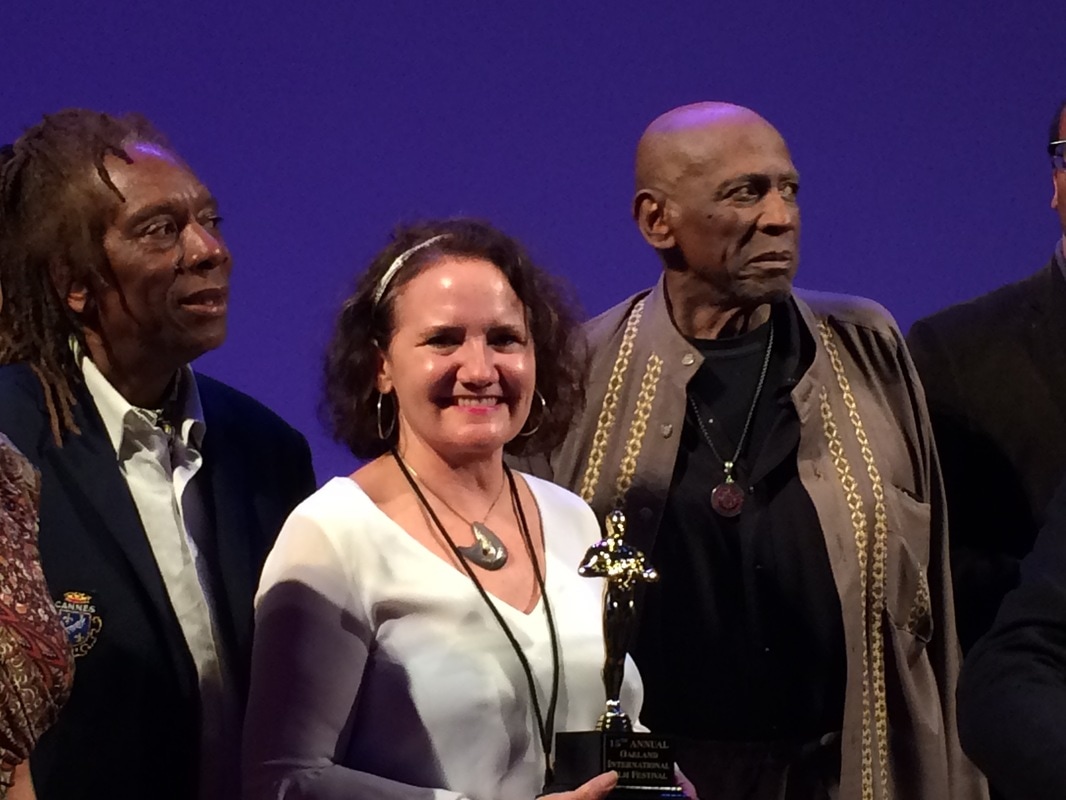
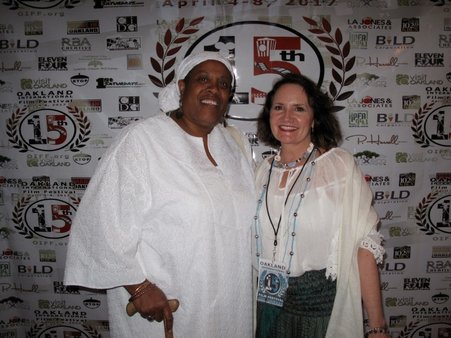
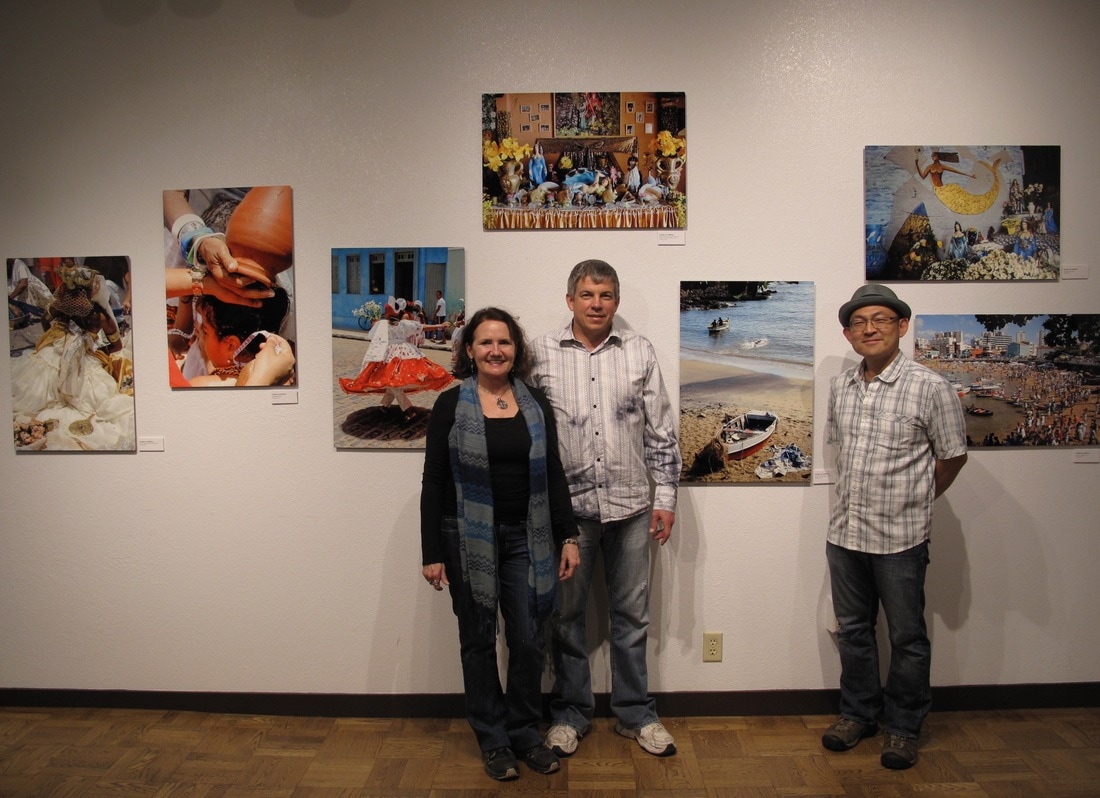
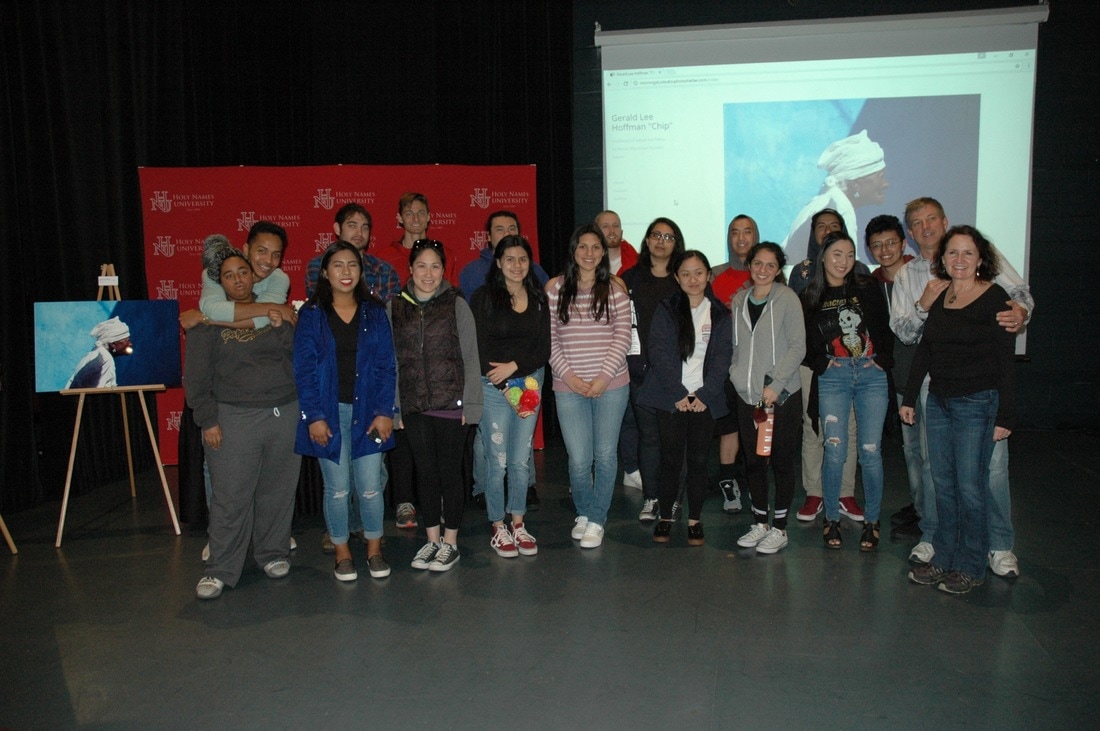
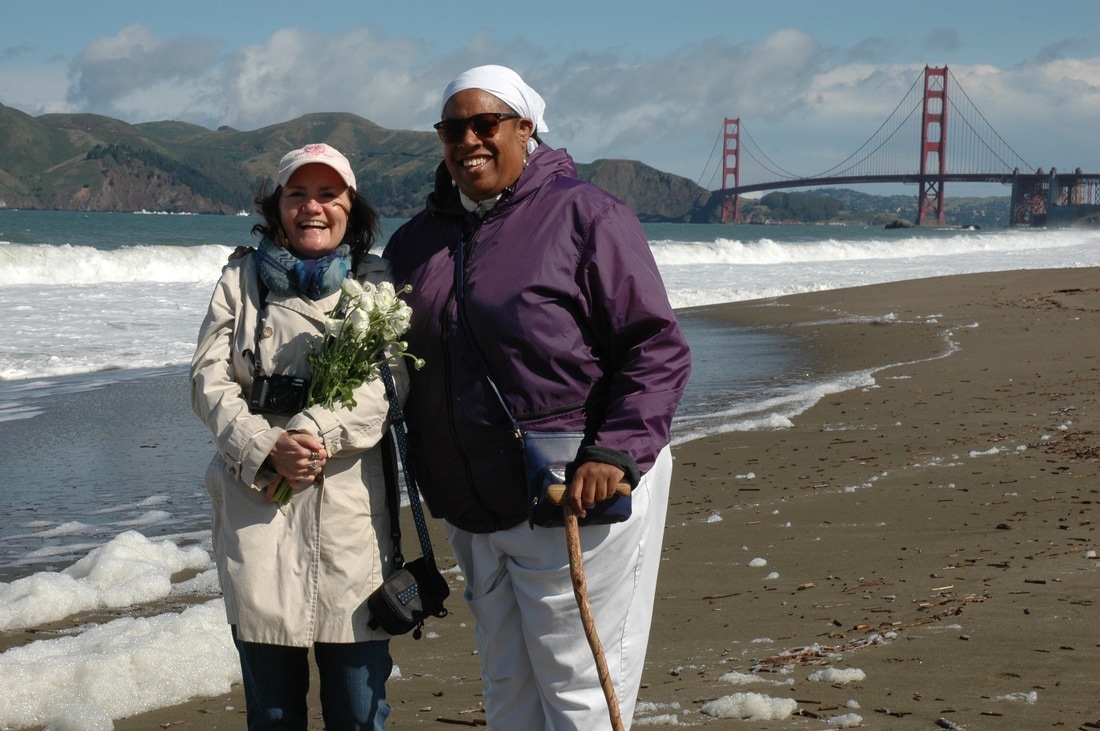
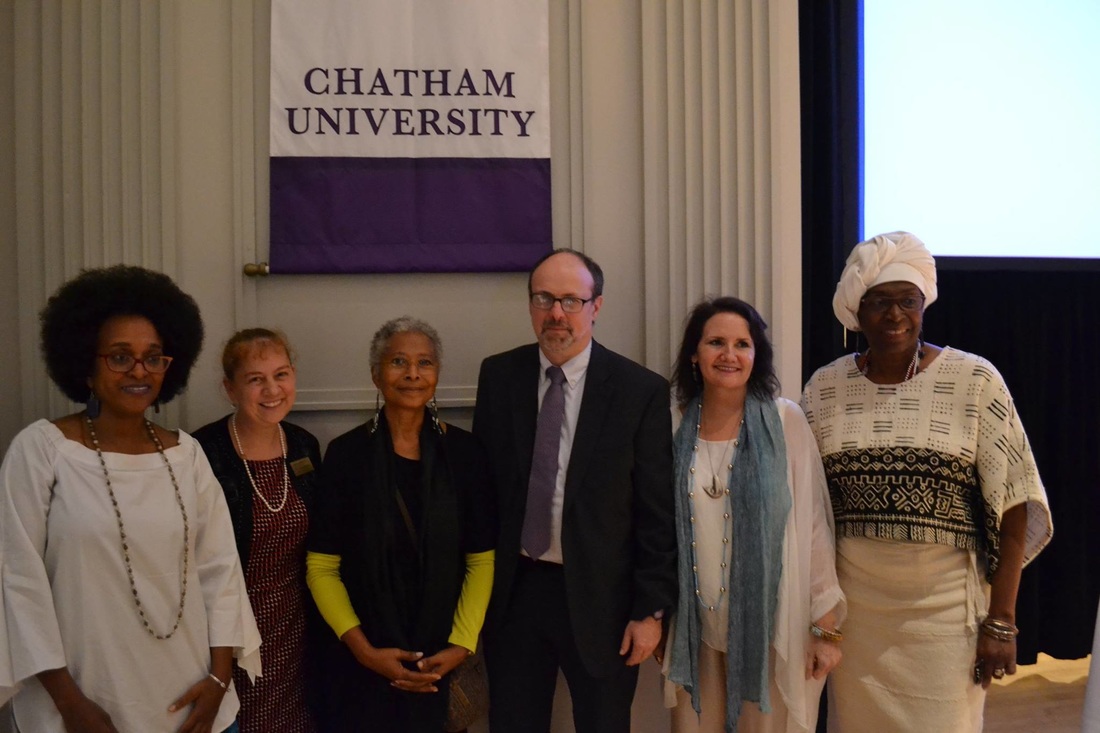
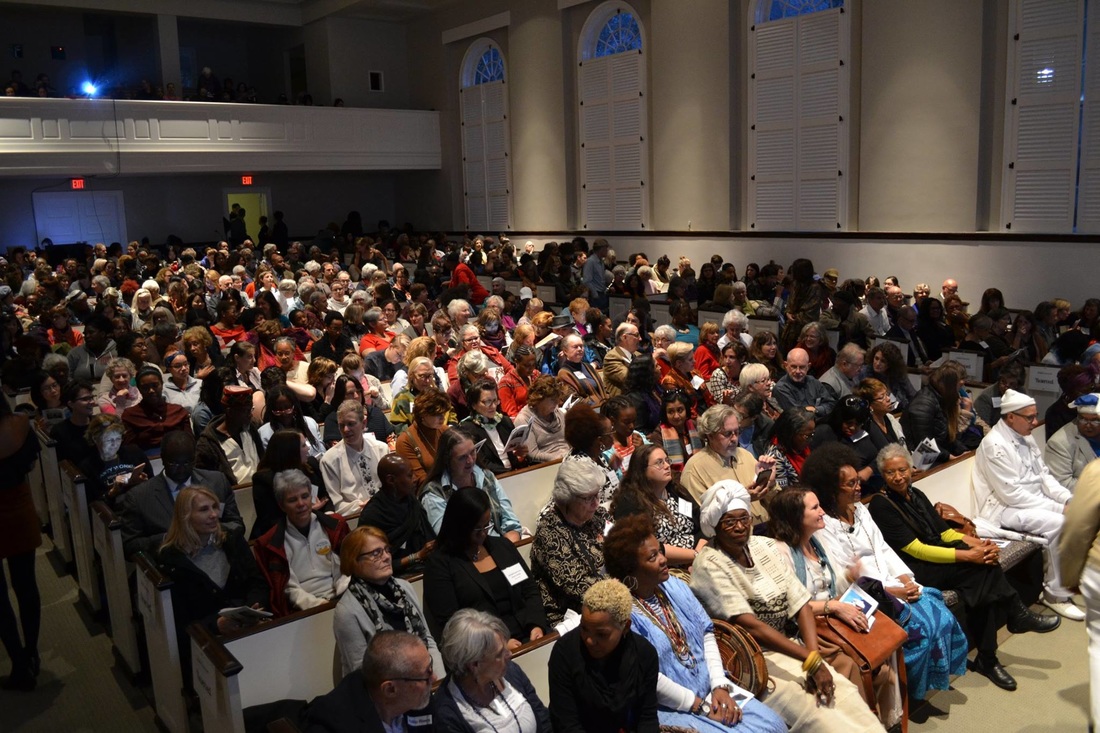
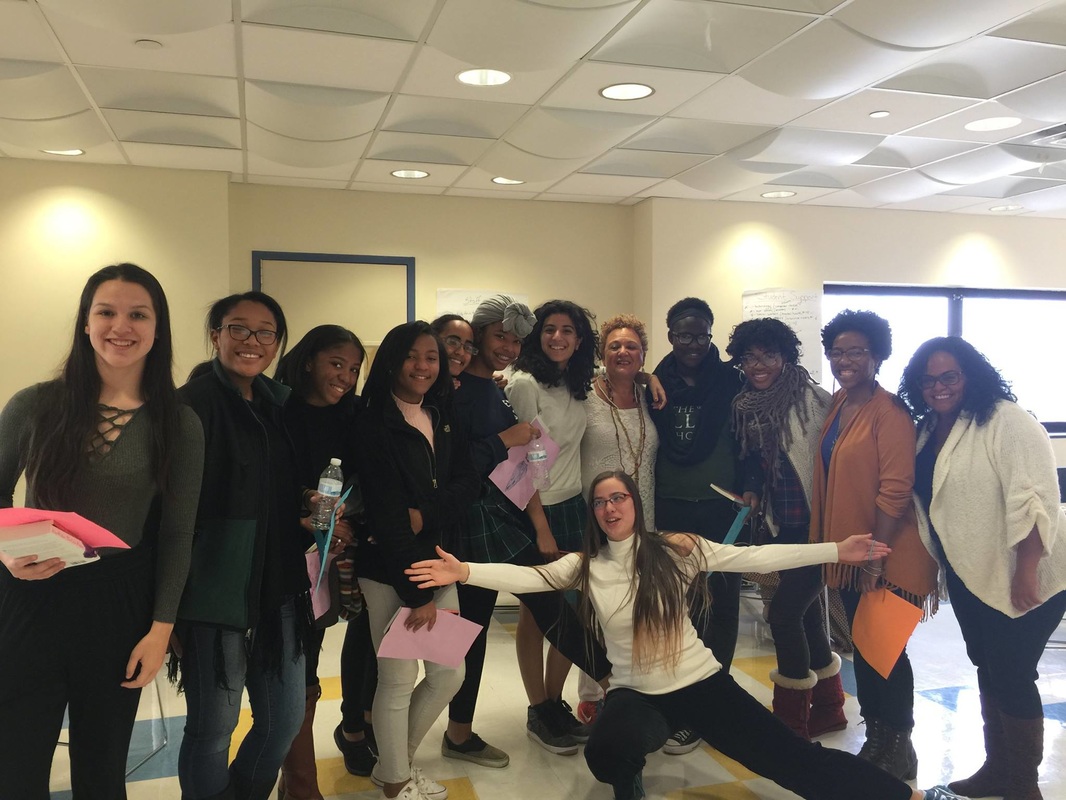
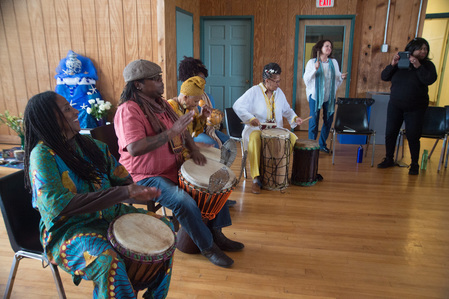
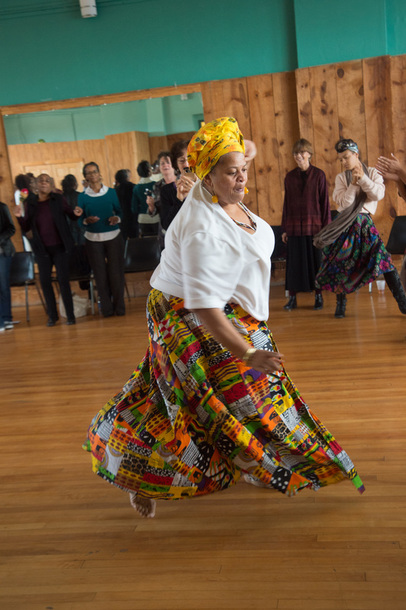
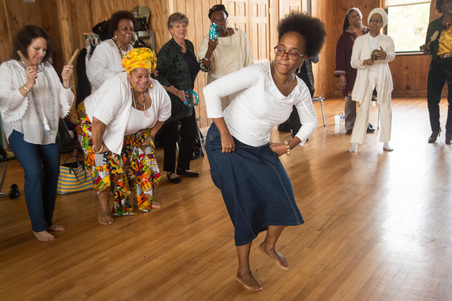
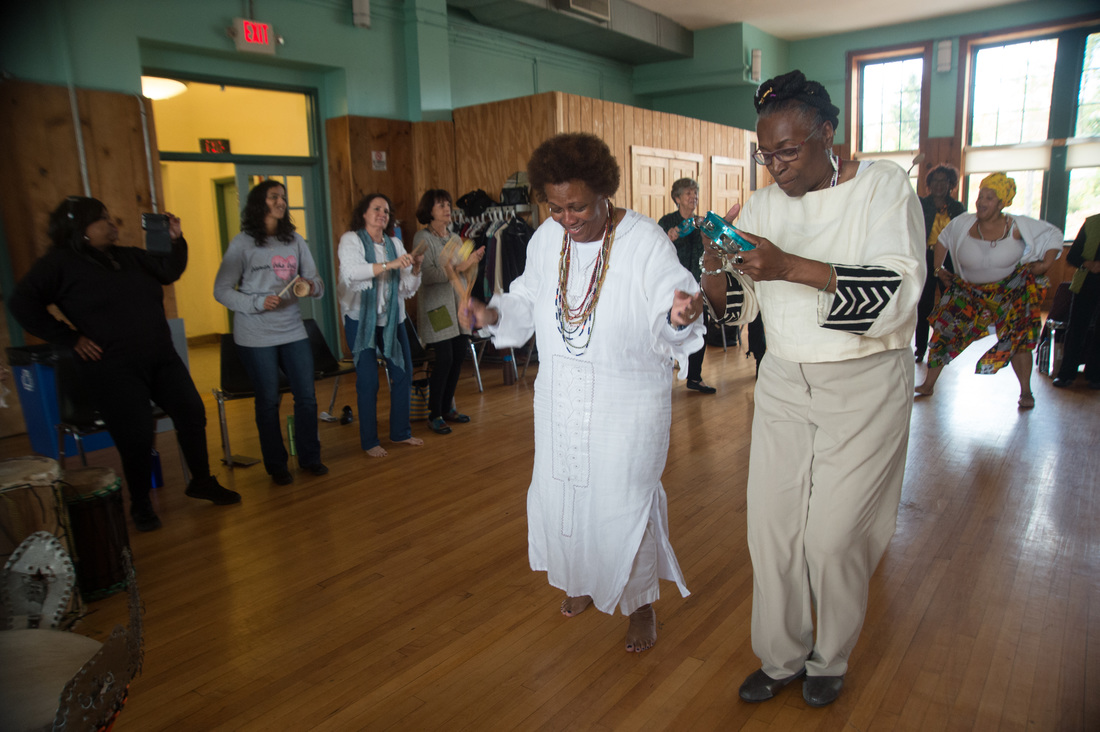
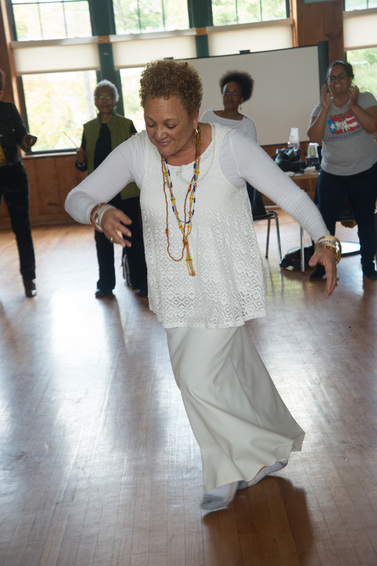
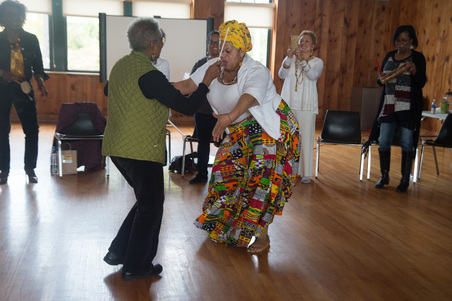
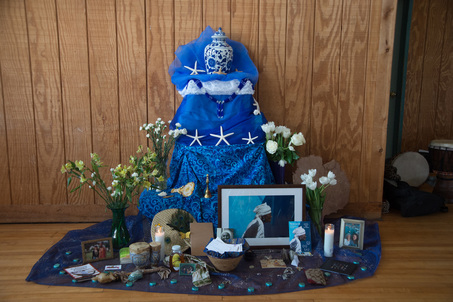
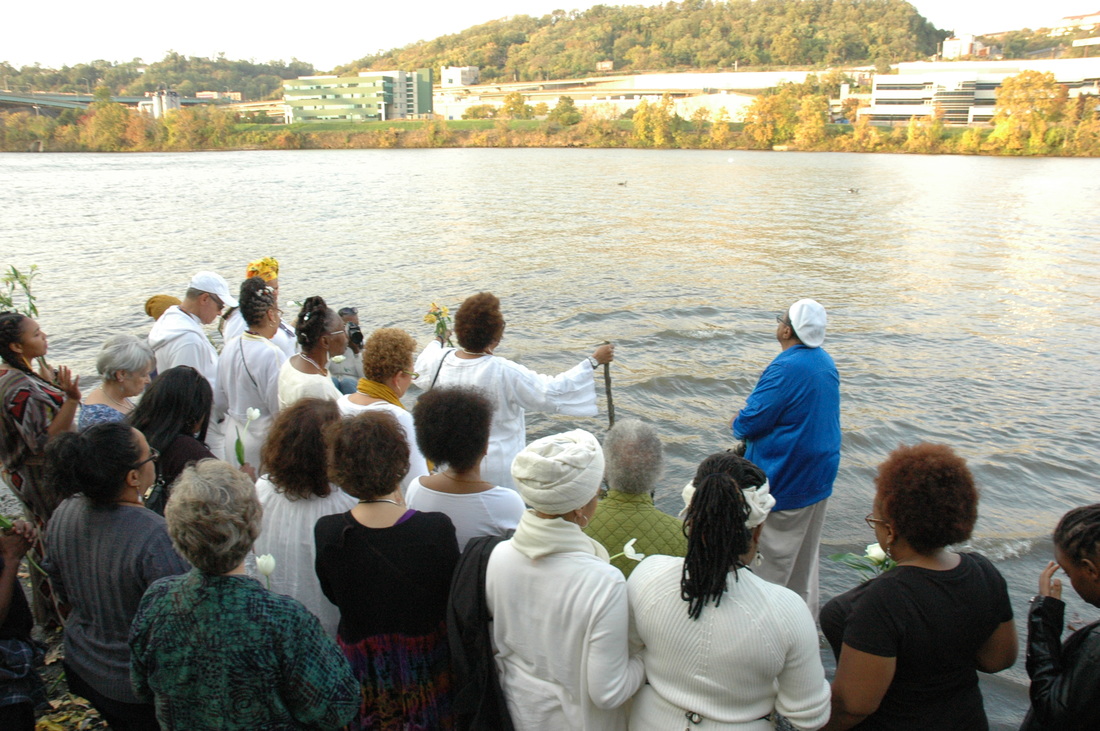
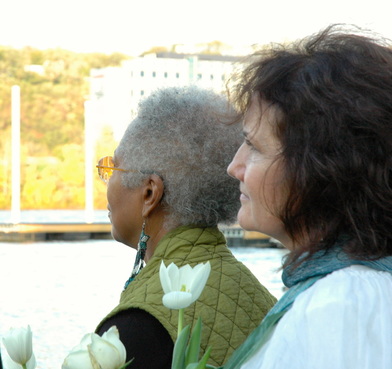
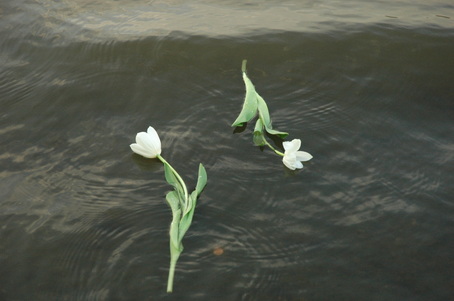
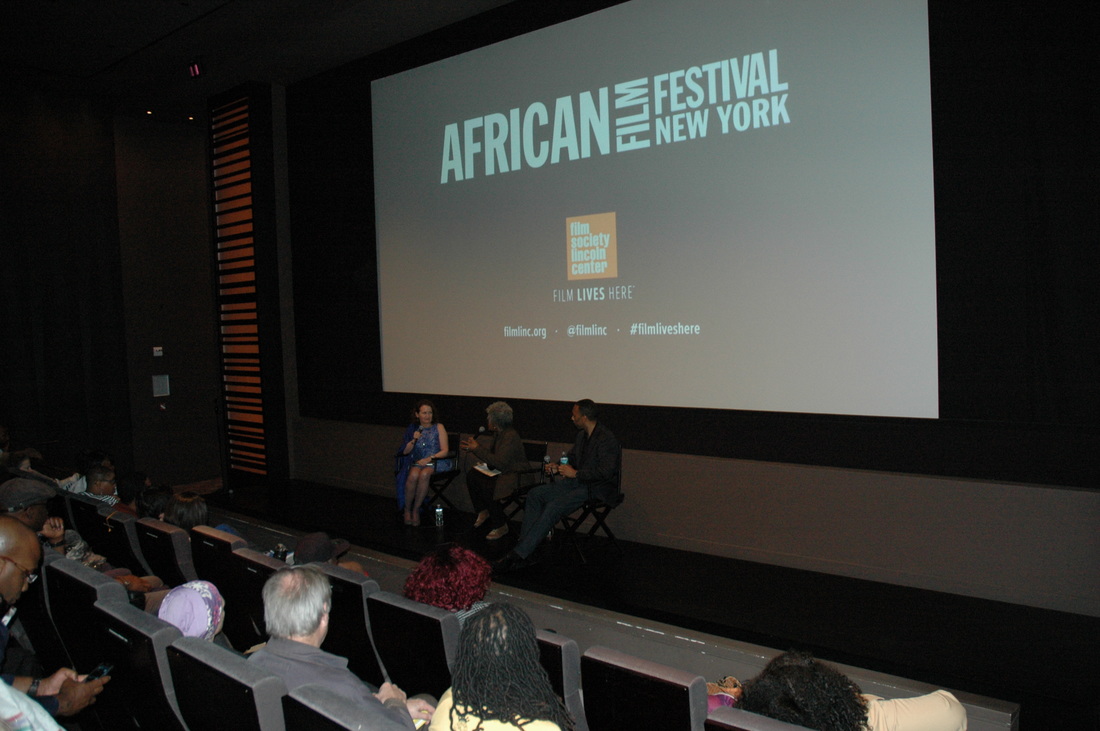
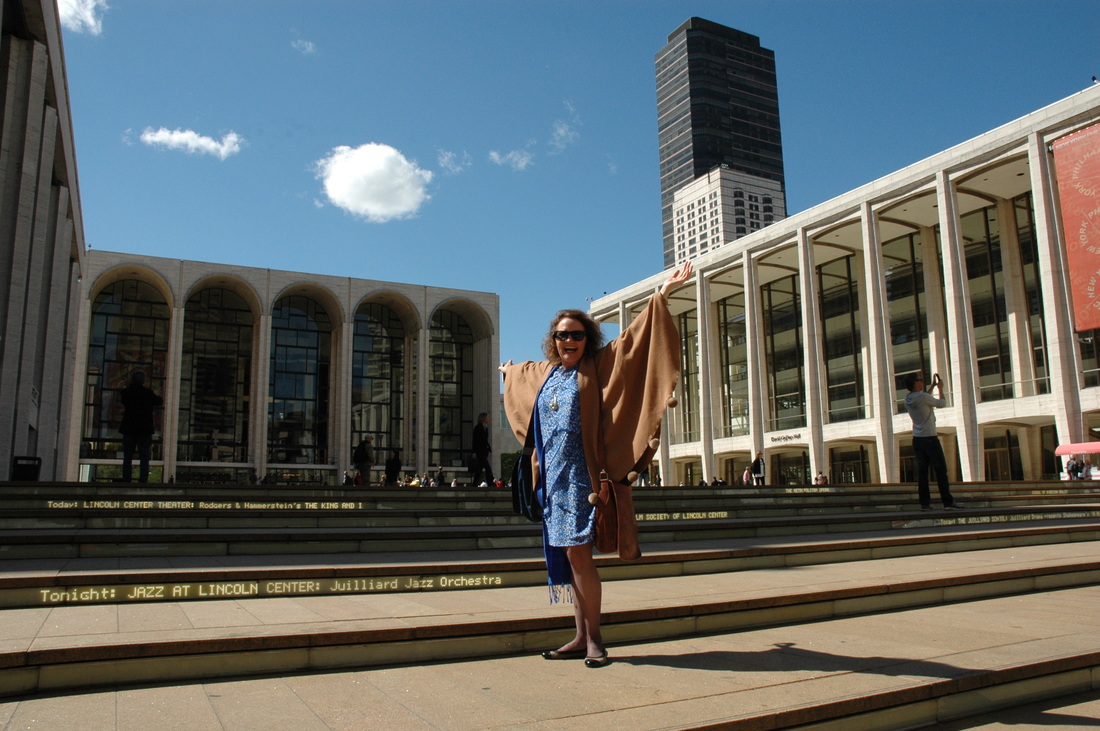
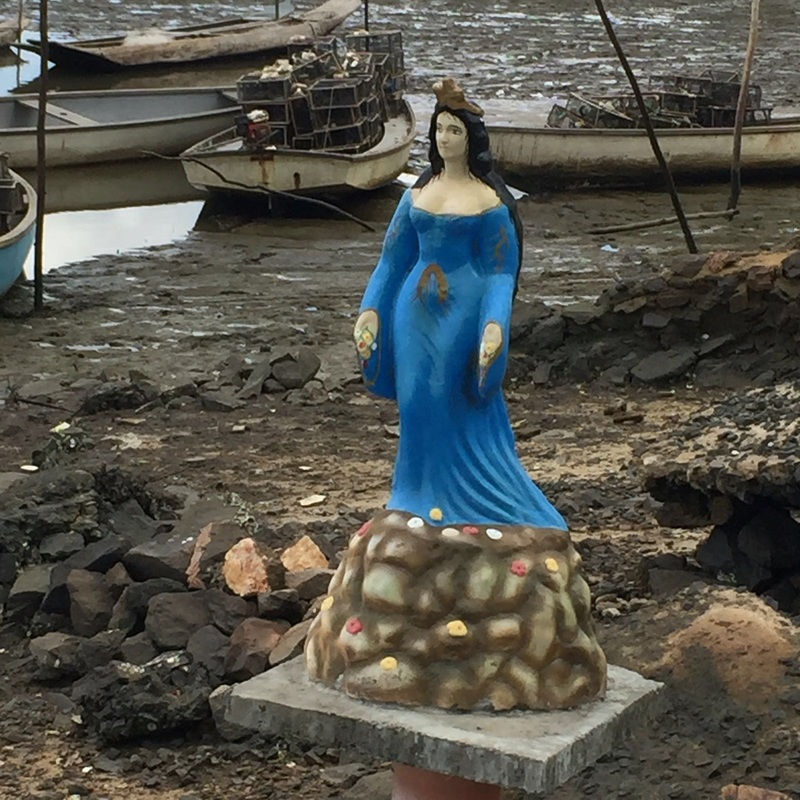
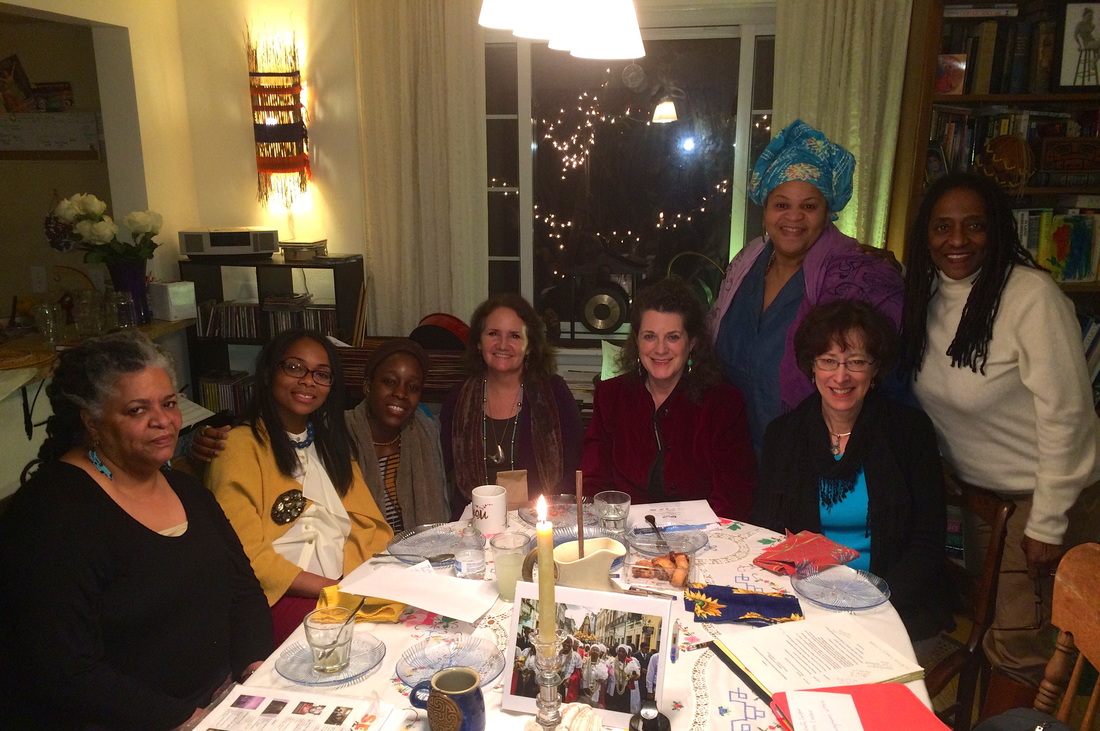
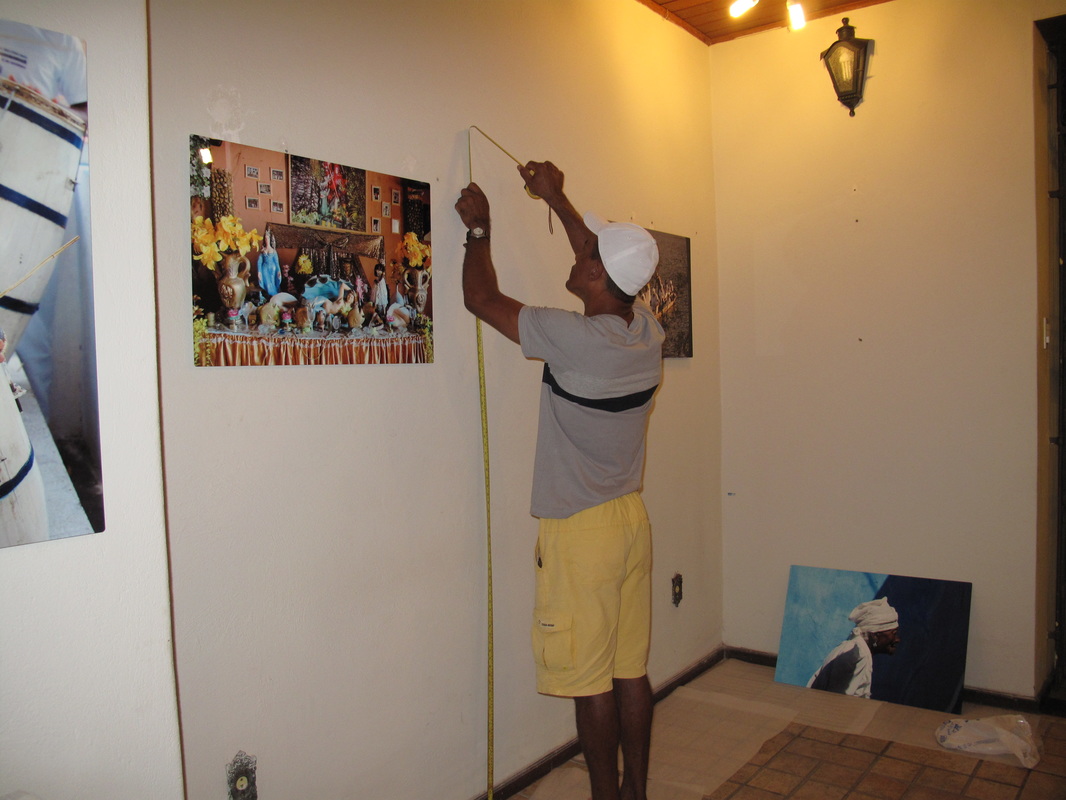
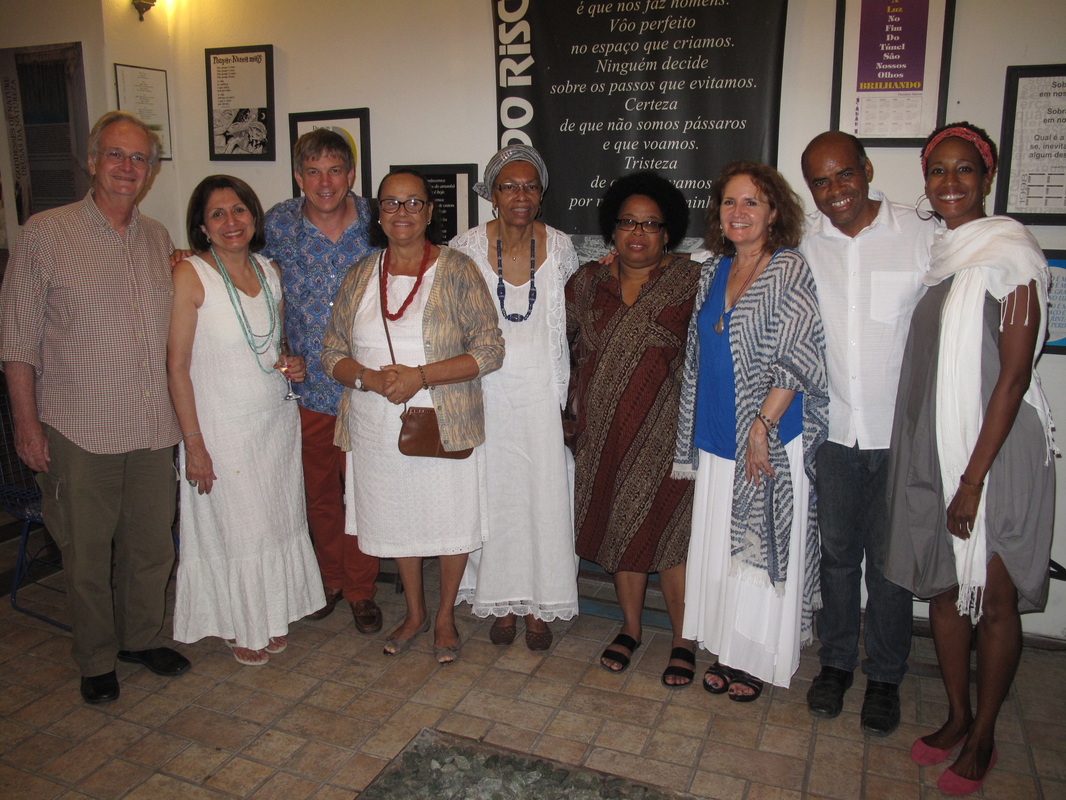
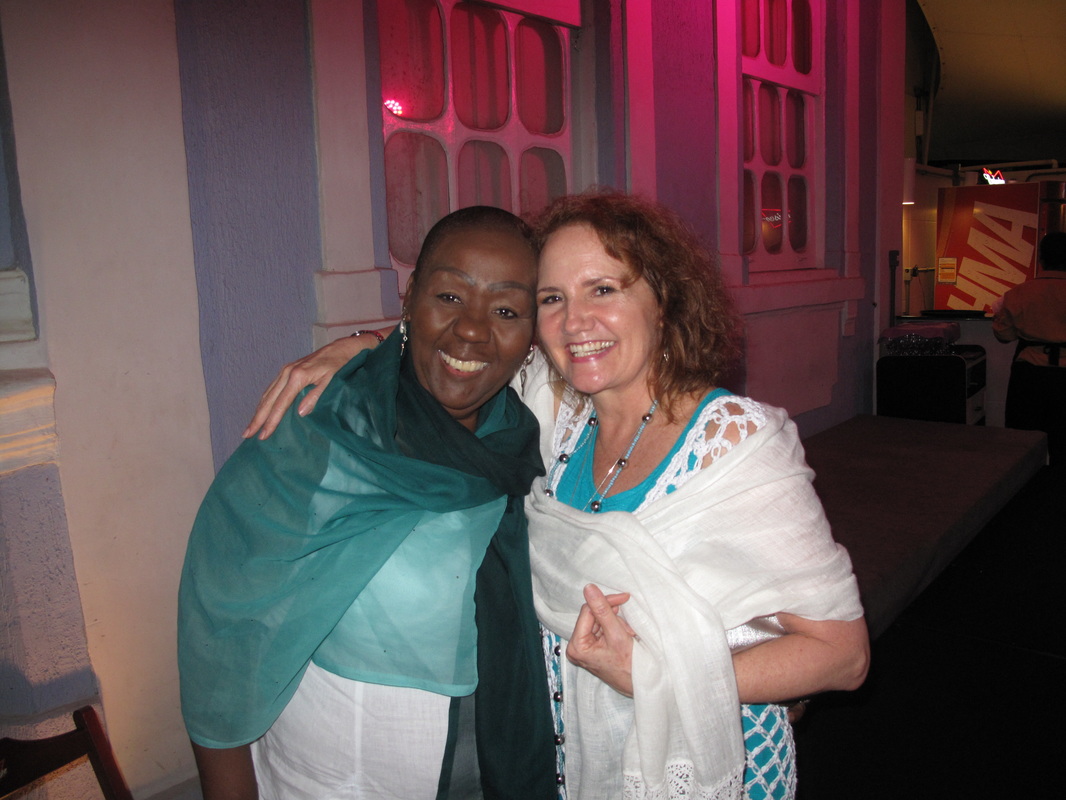
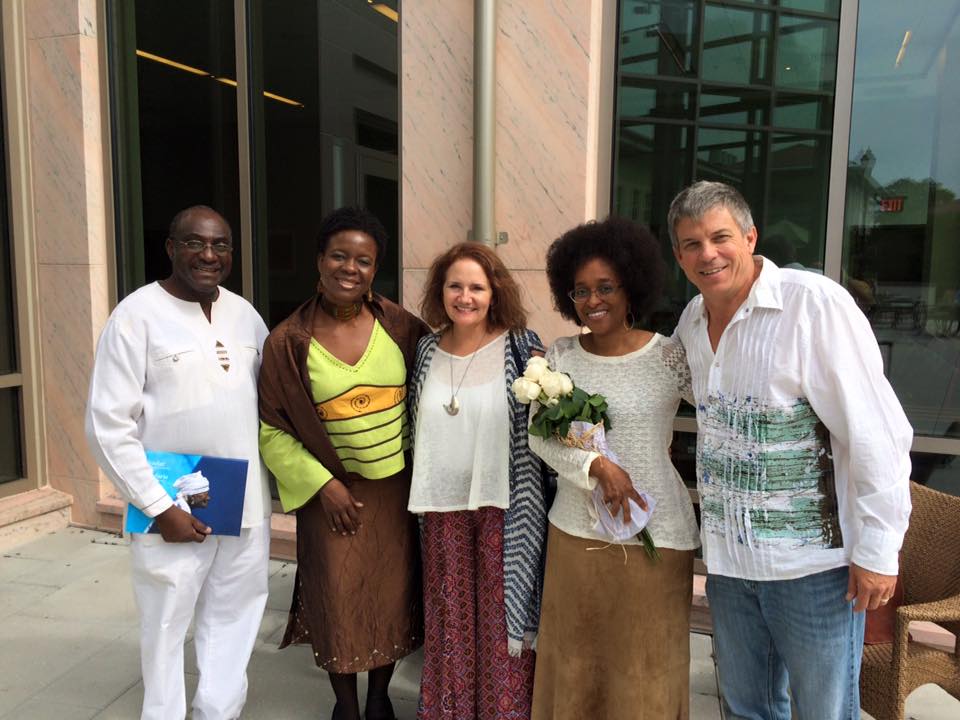
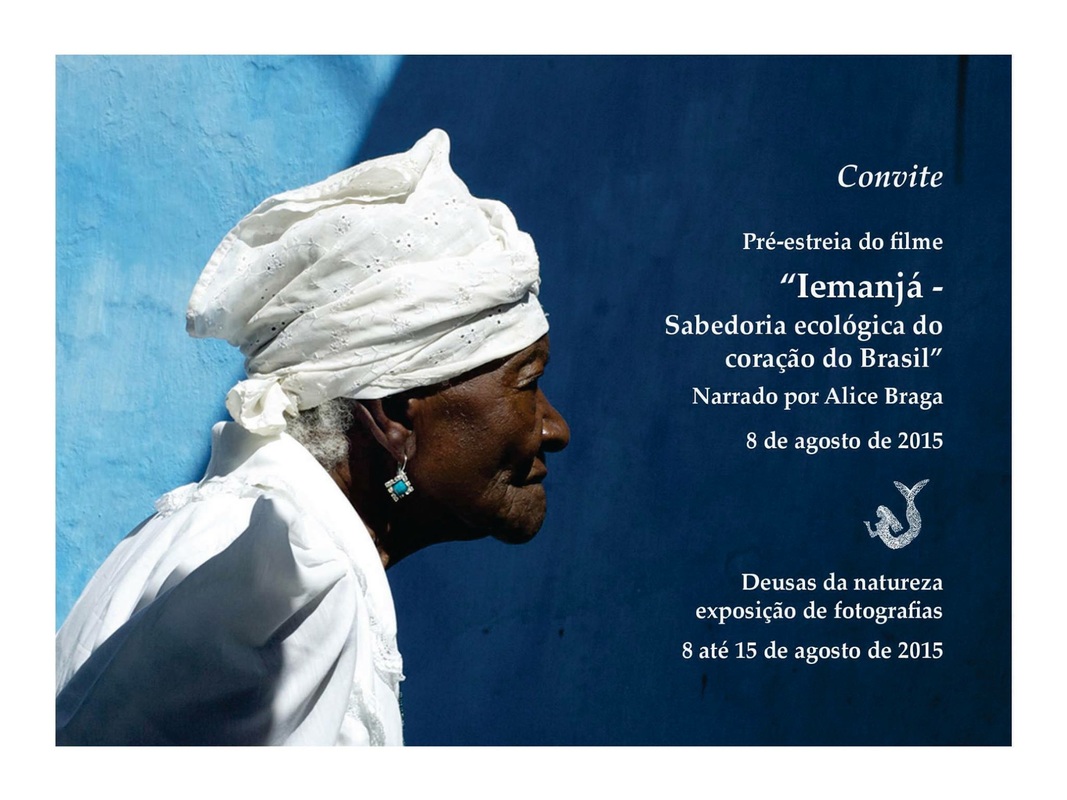
 RSS Feed
RSS Feed